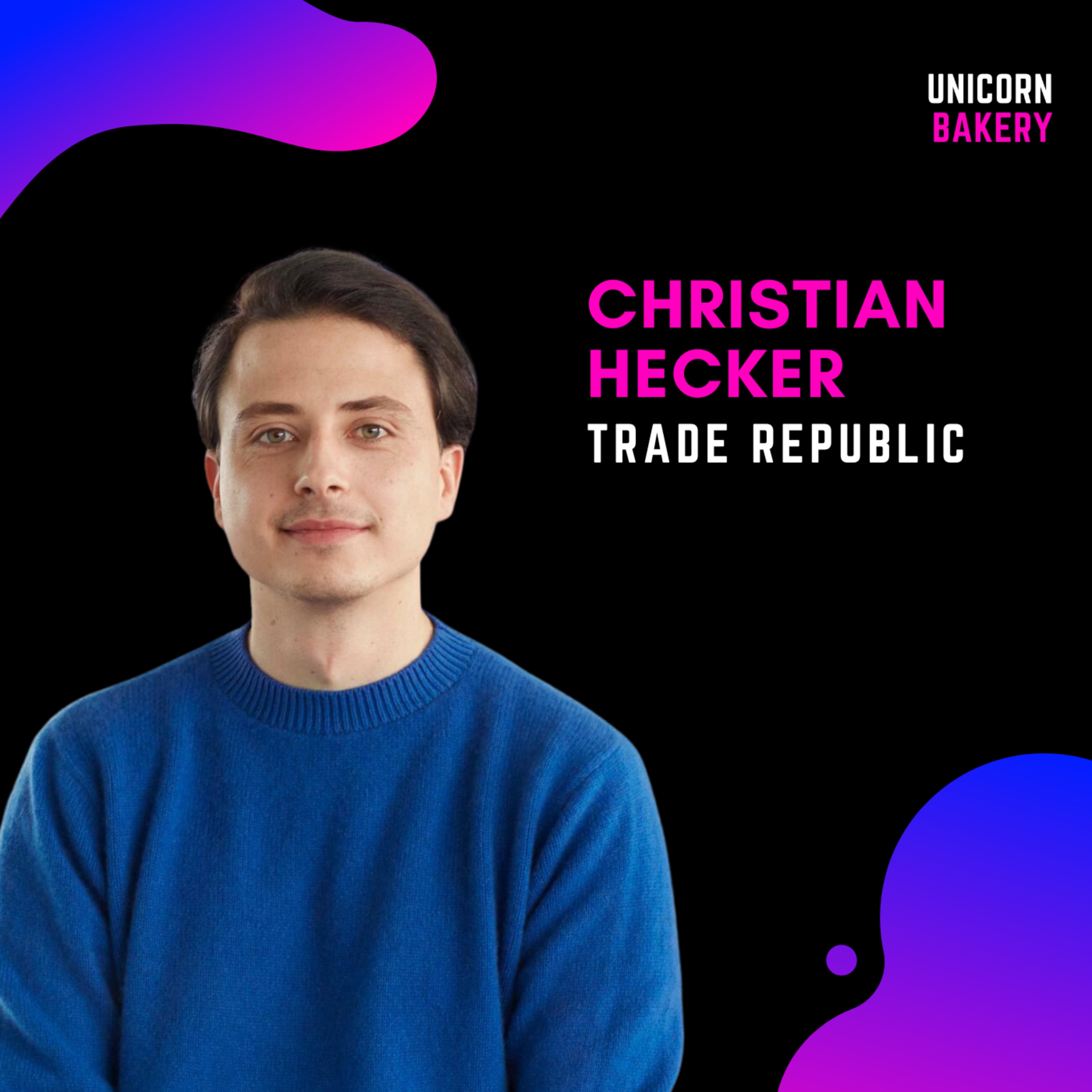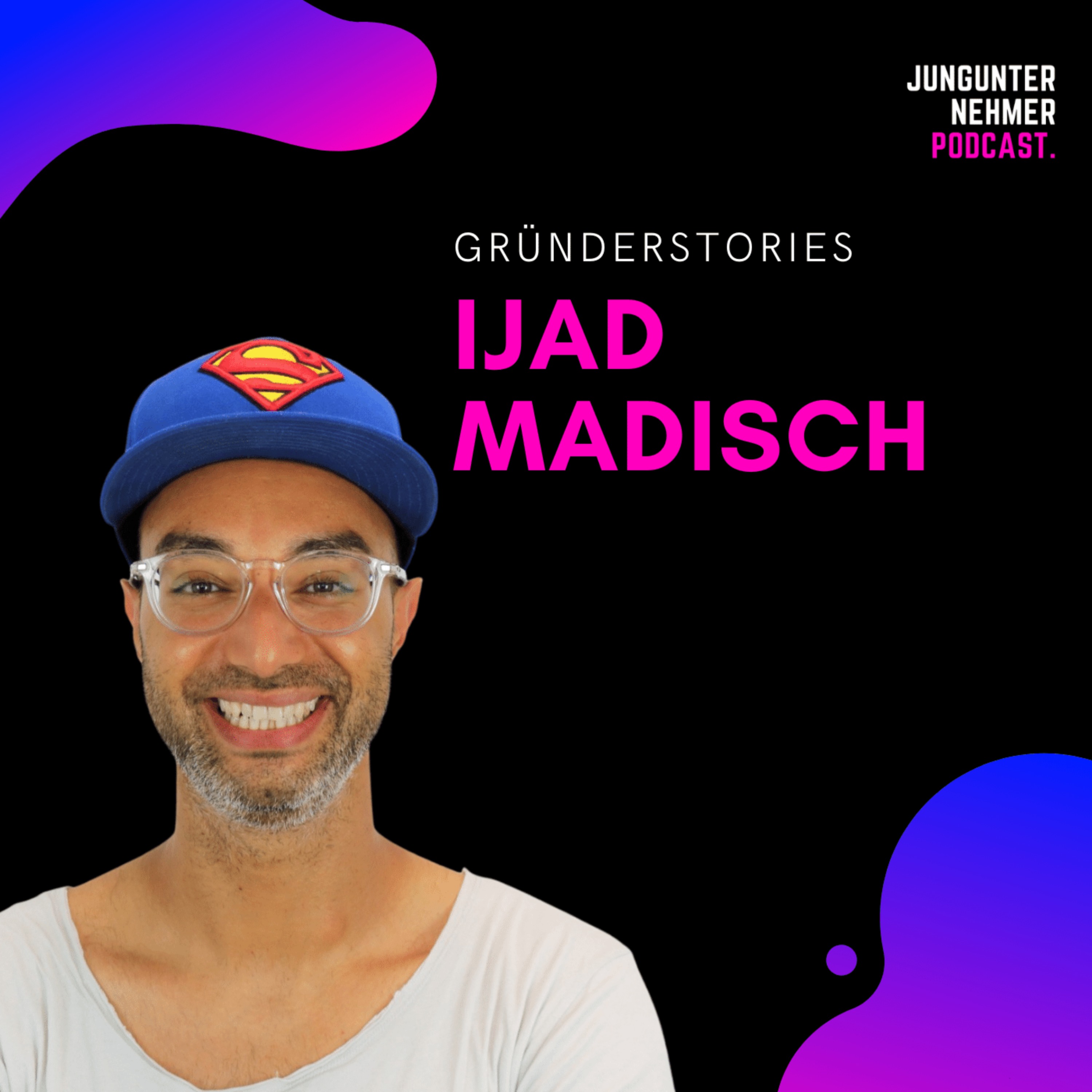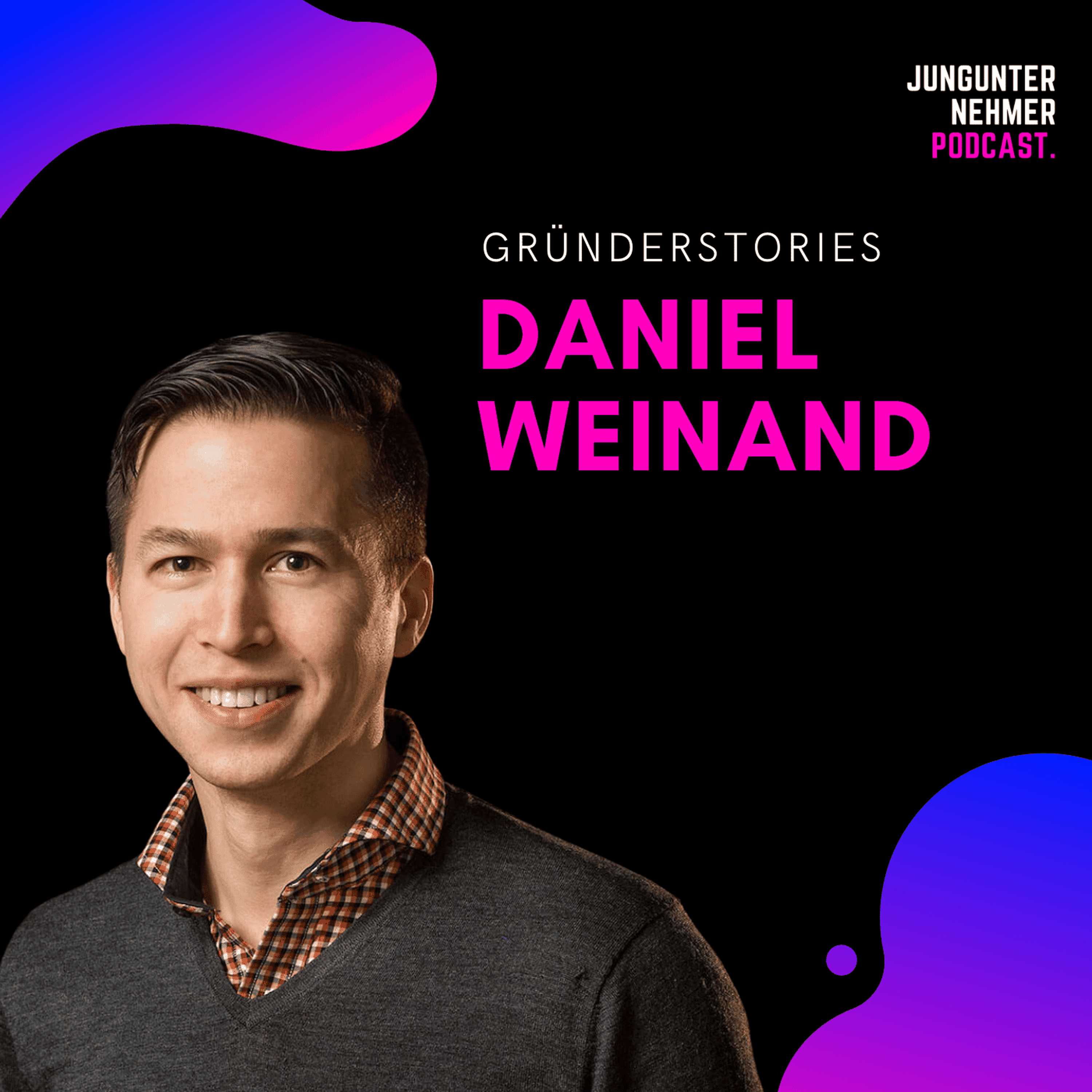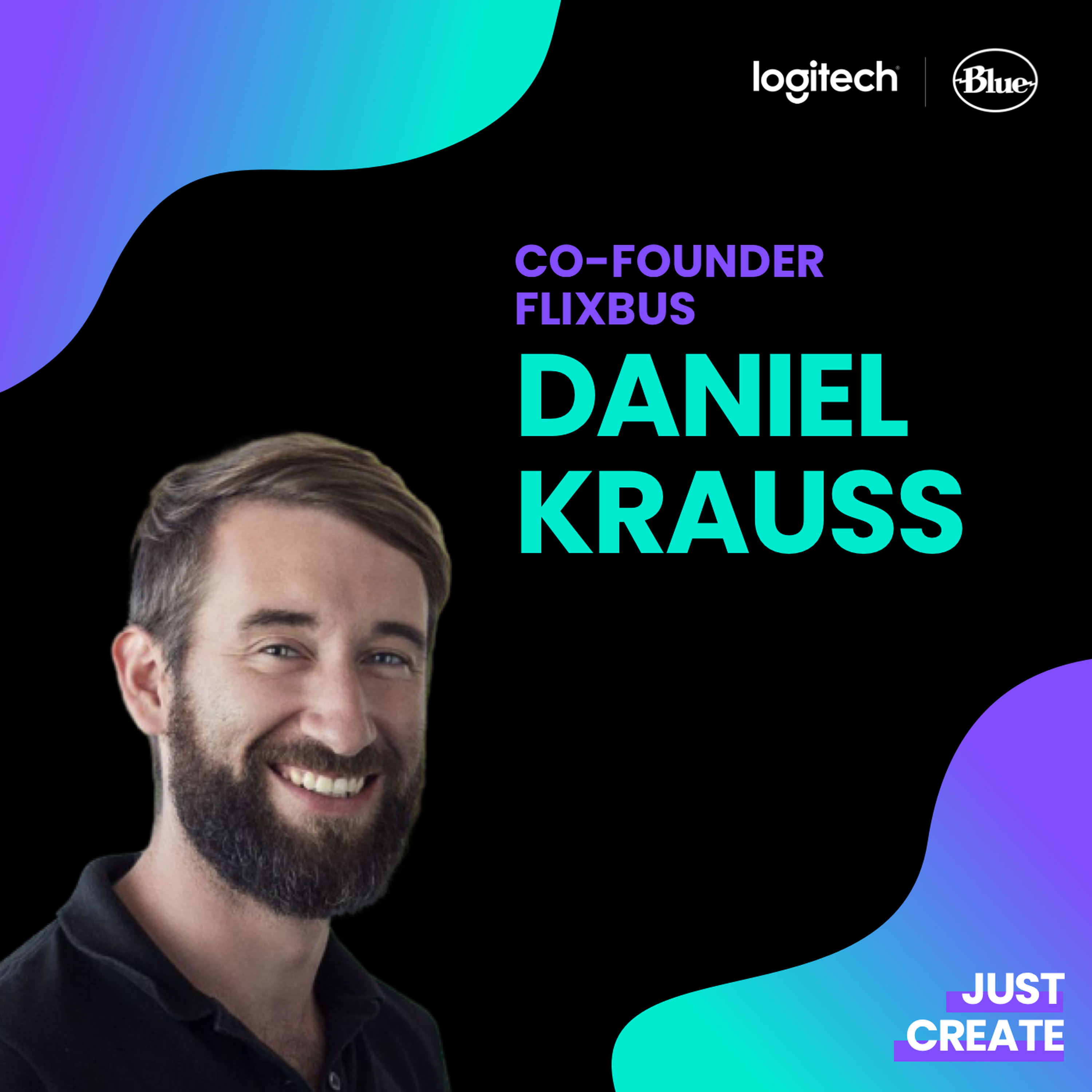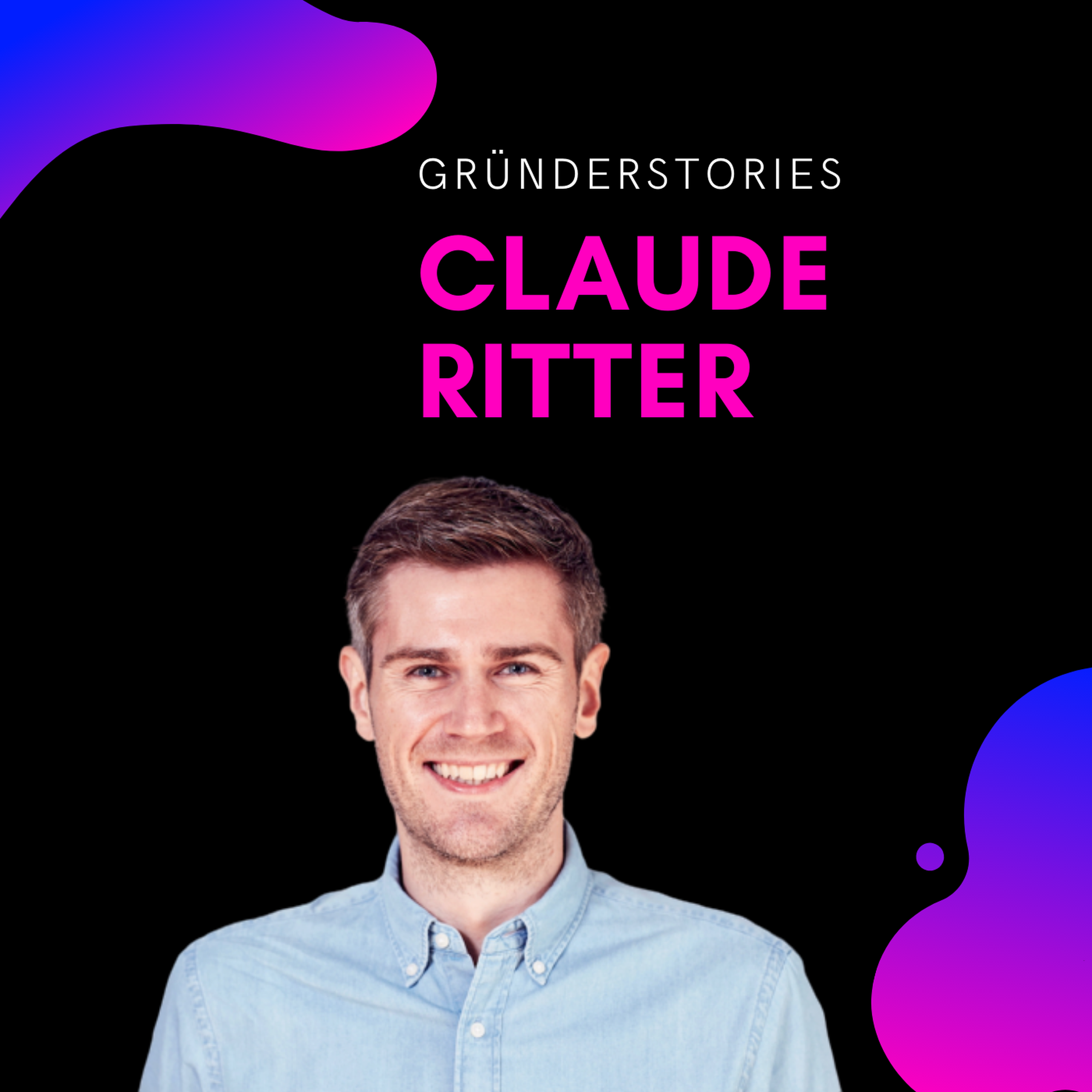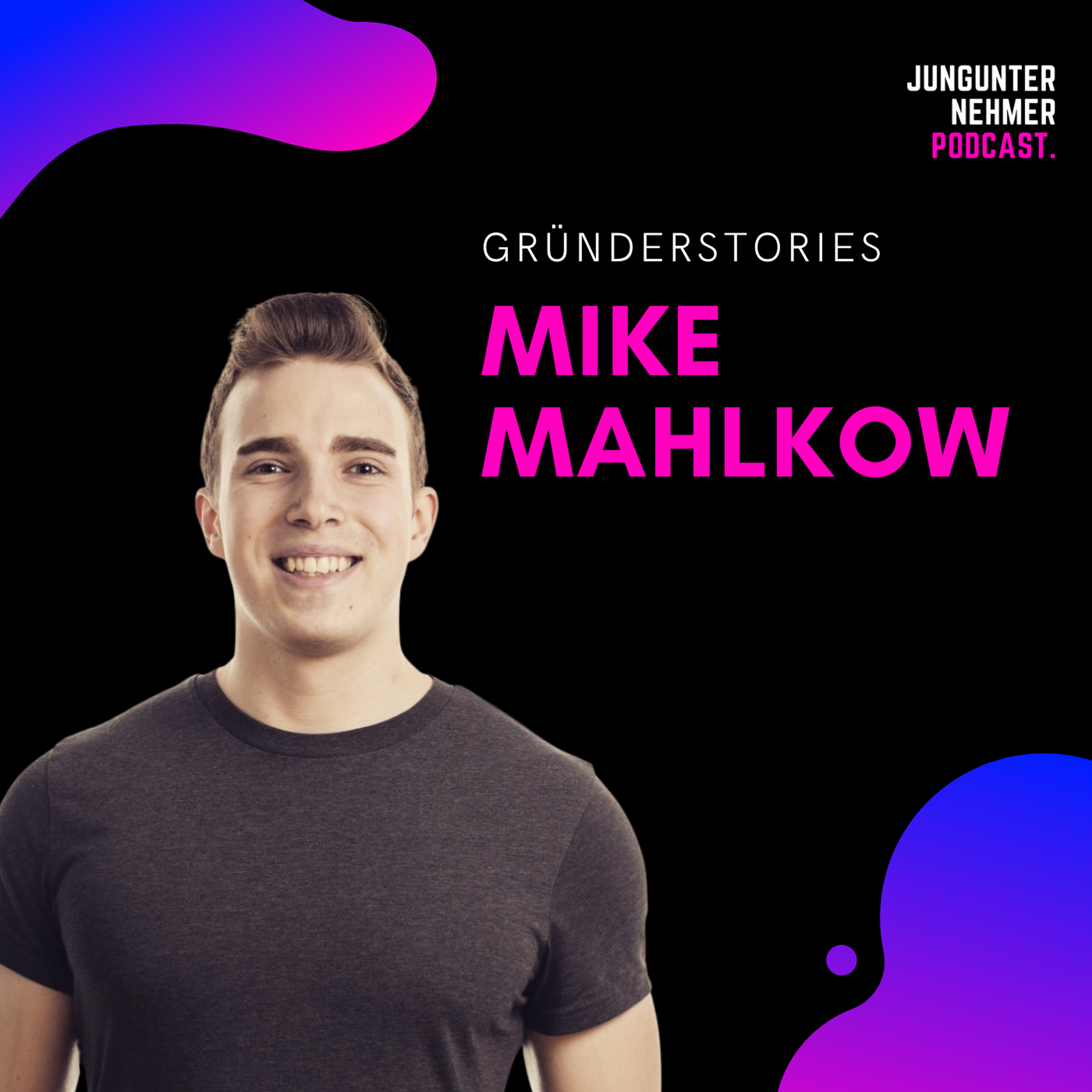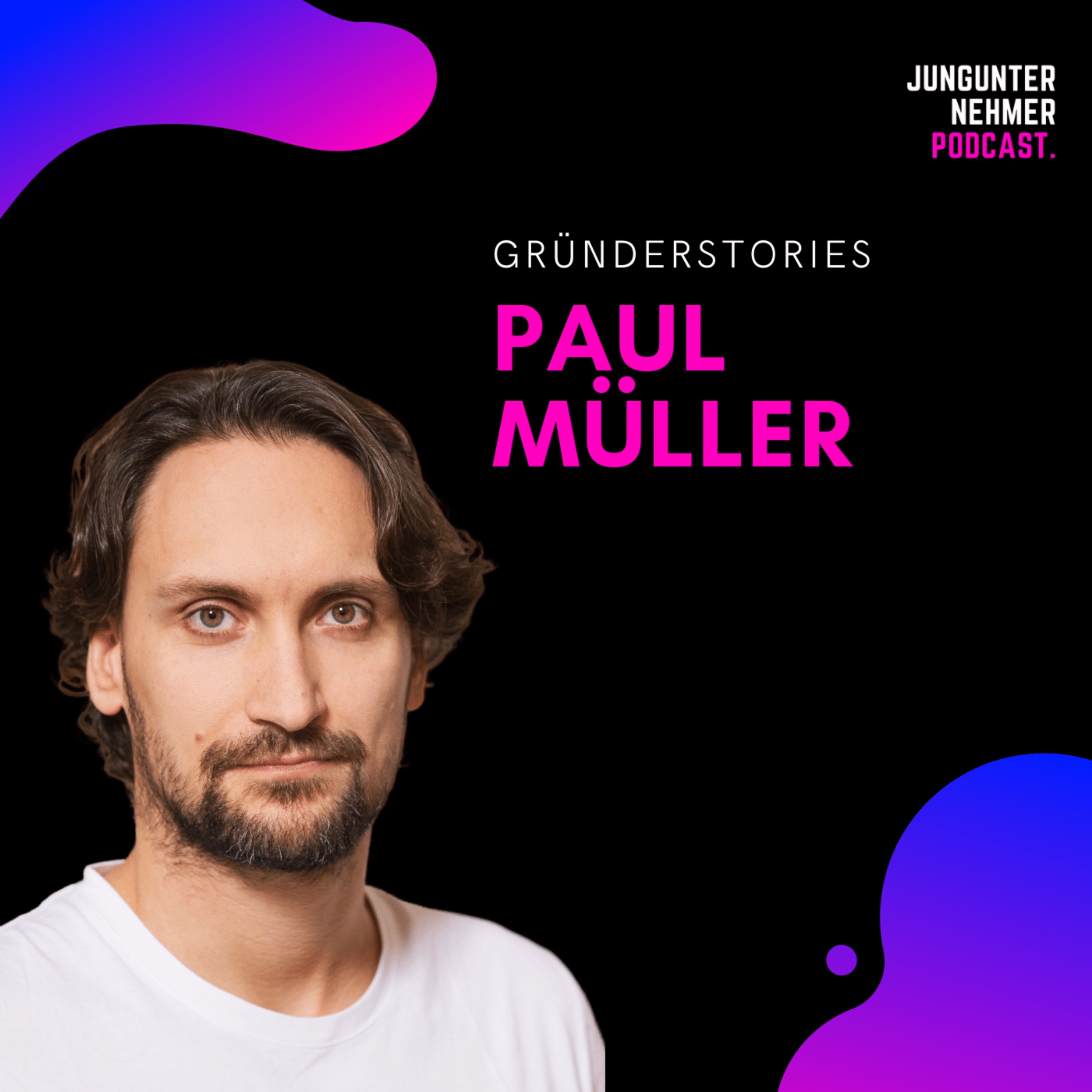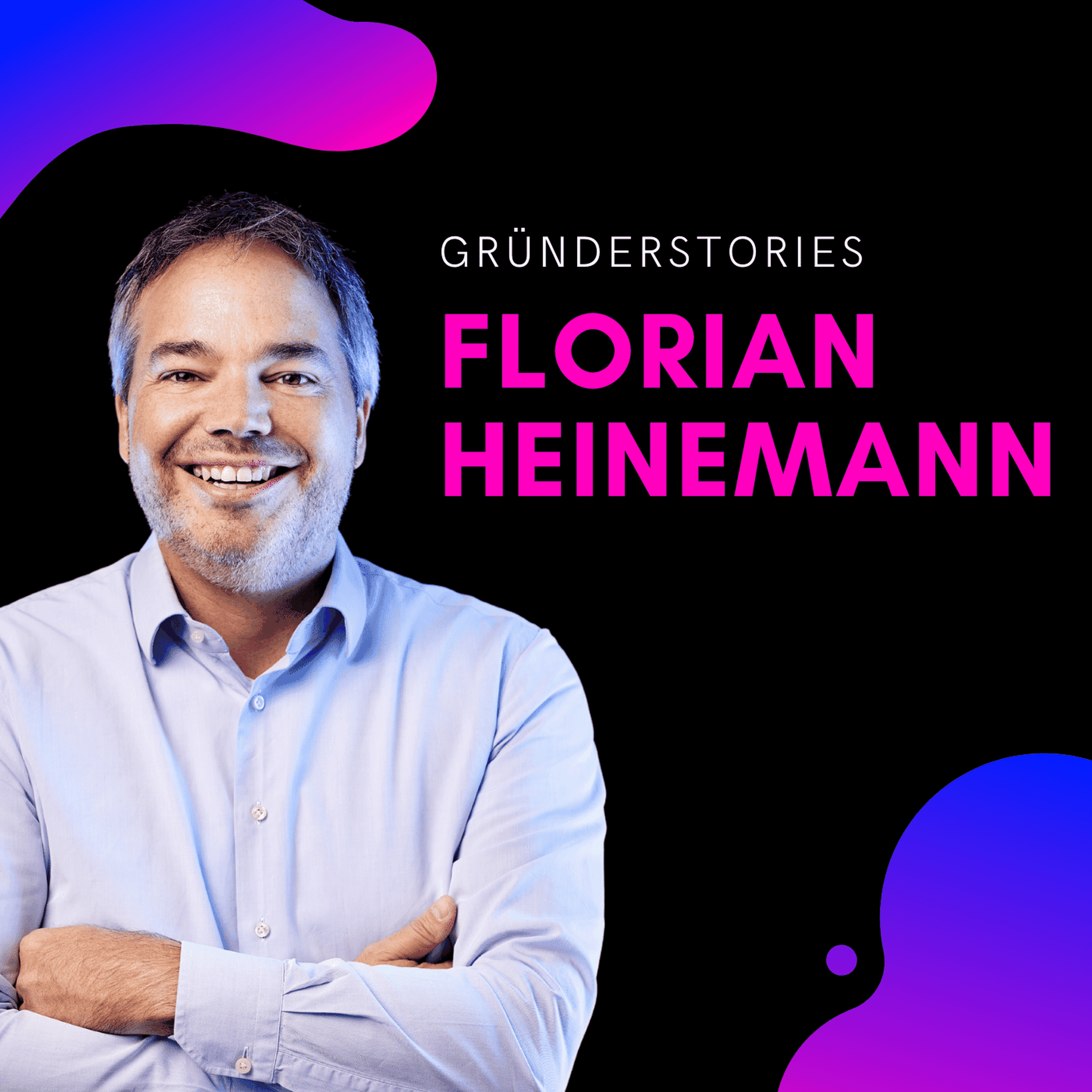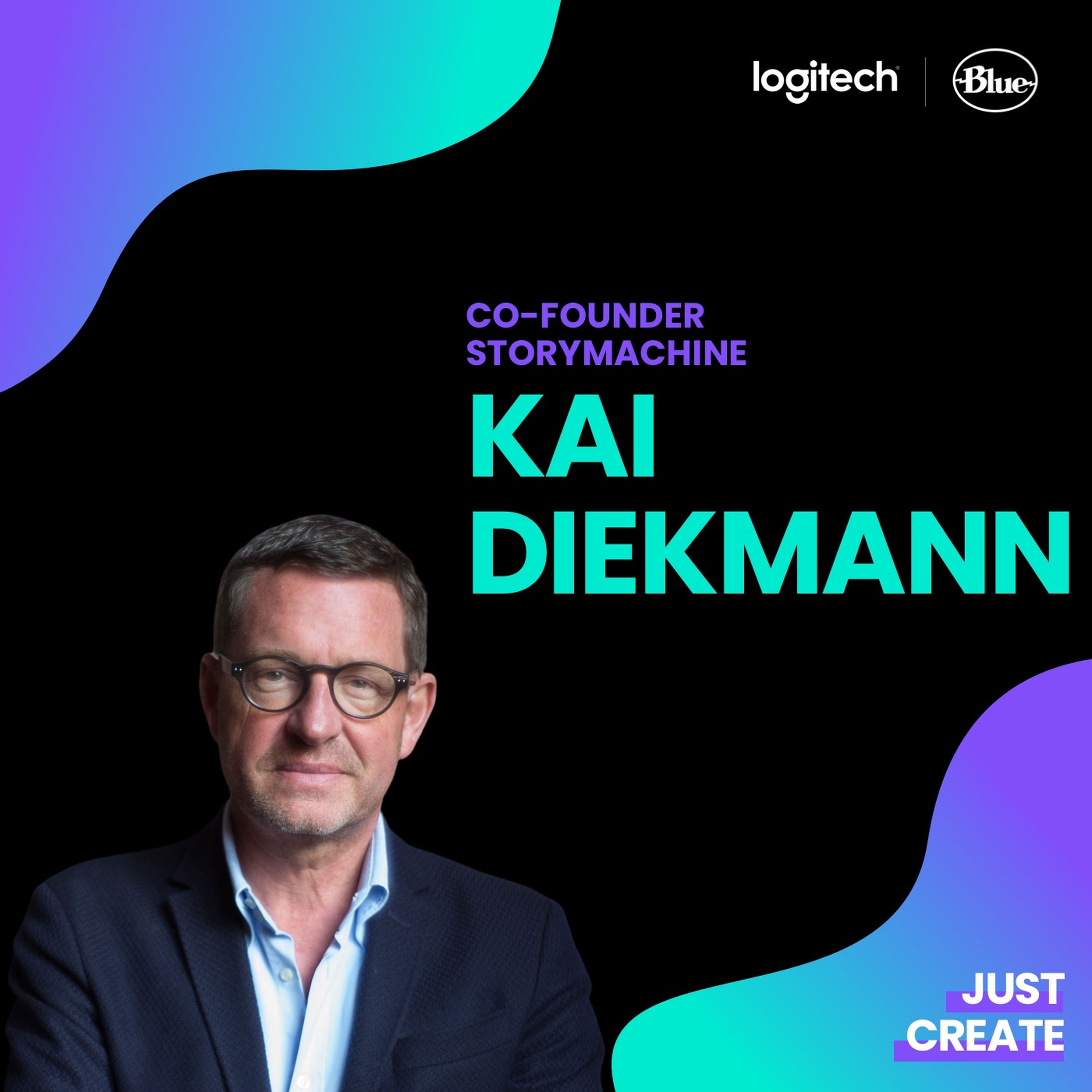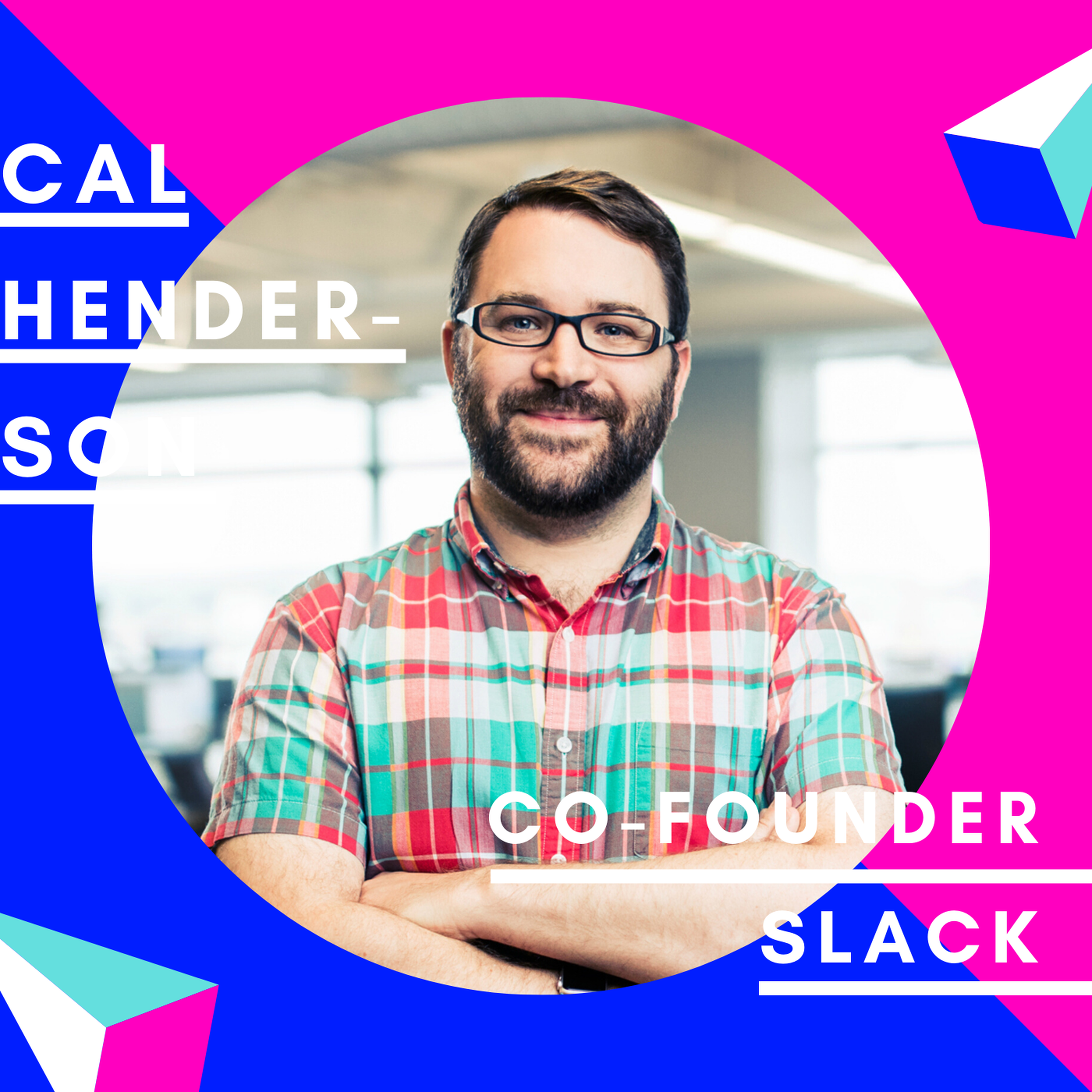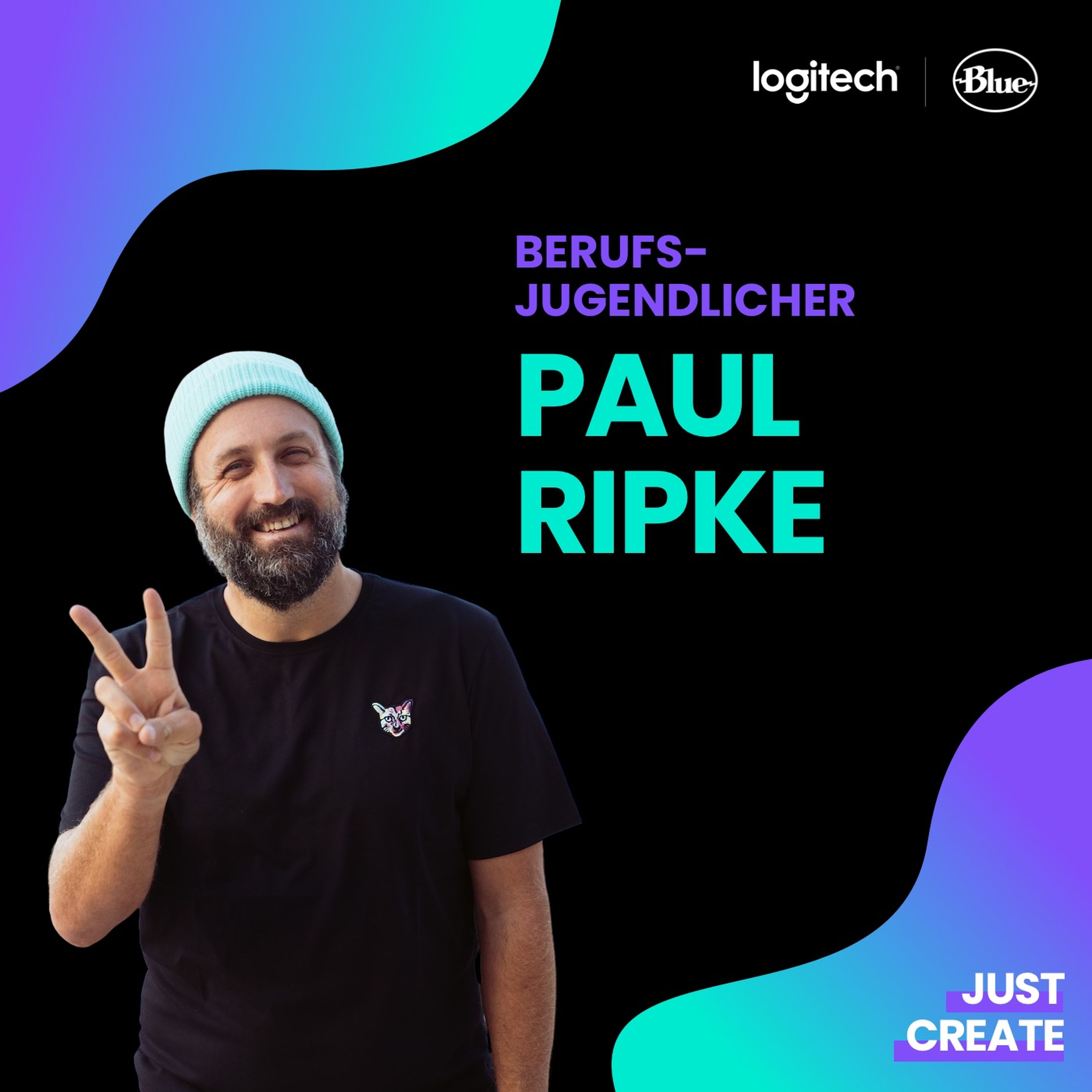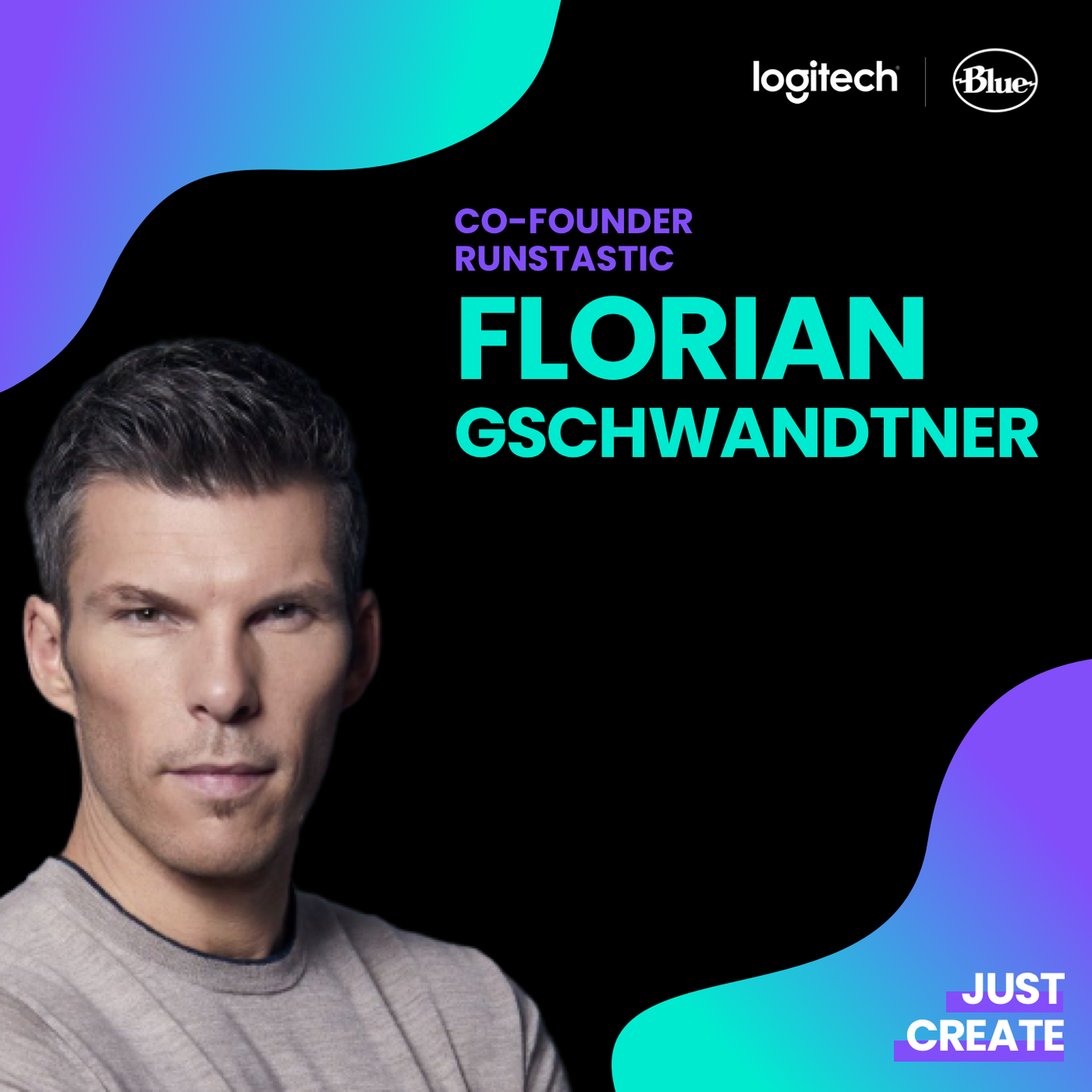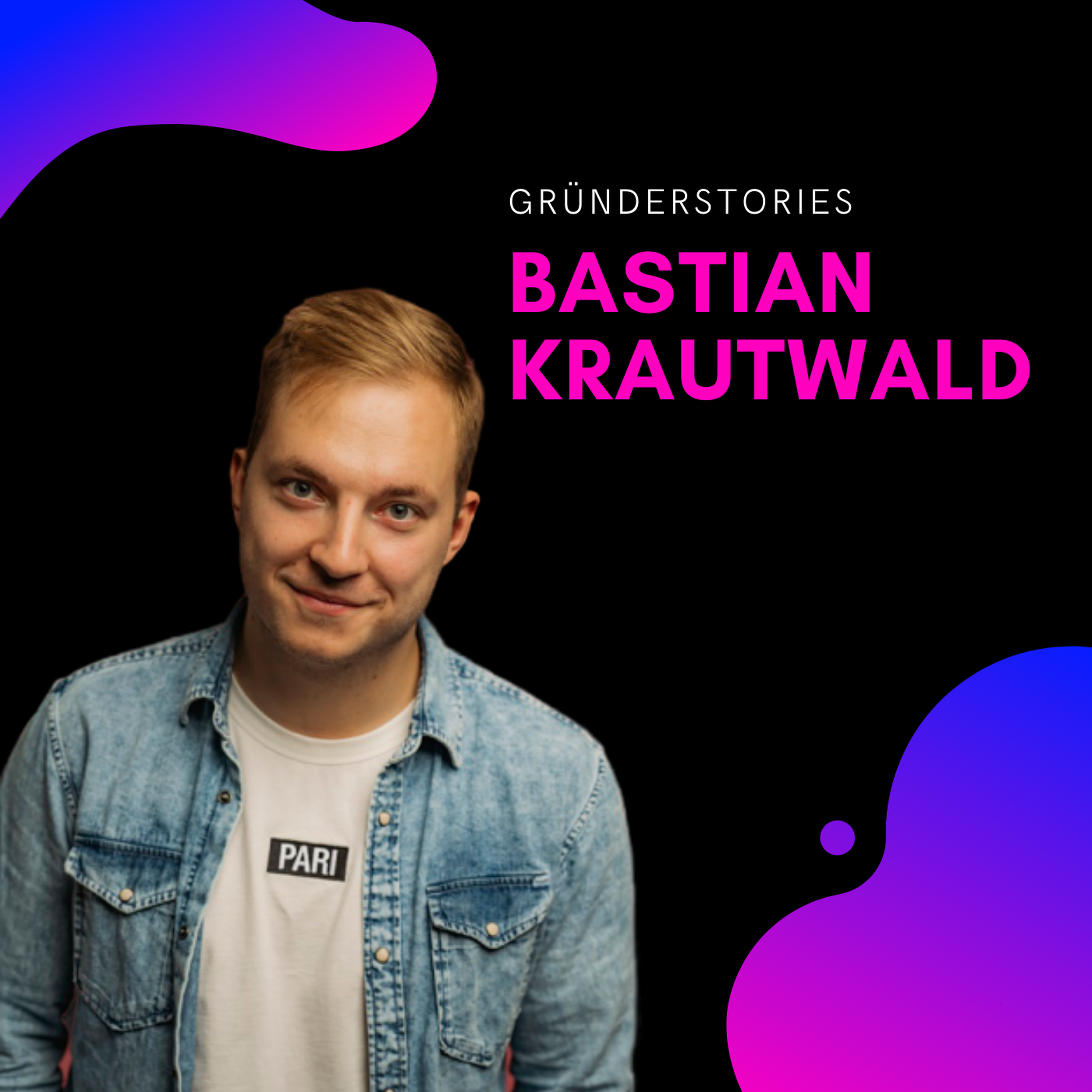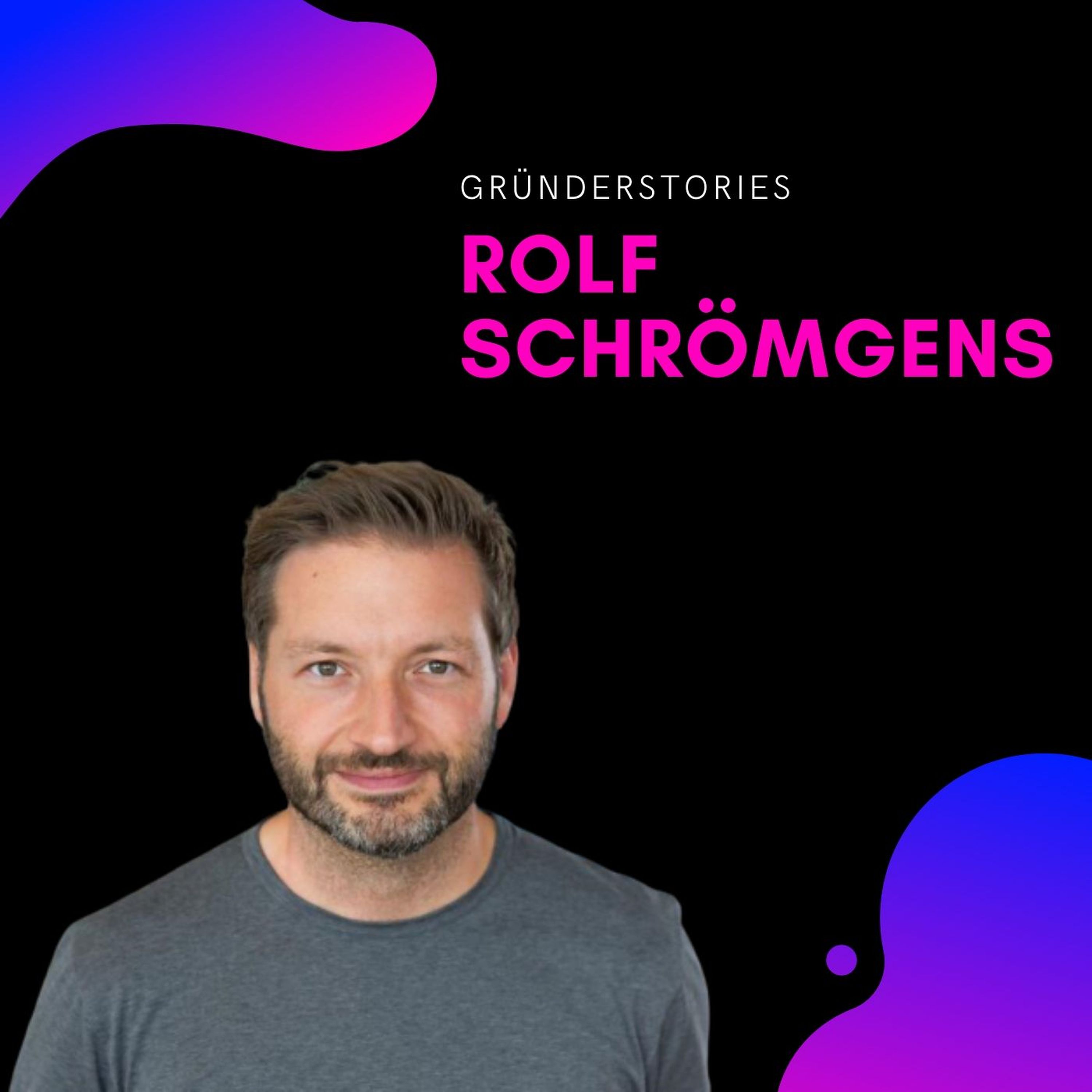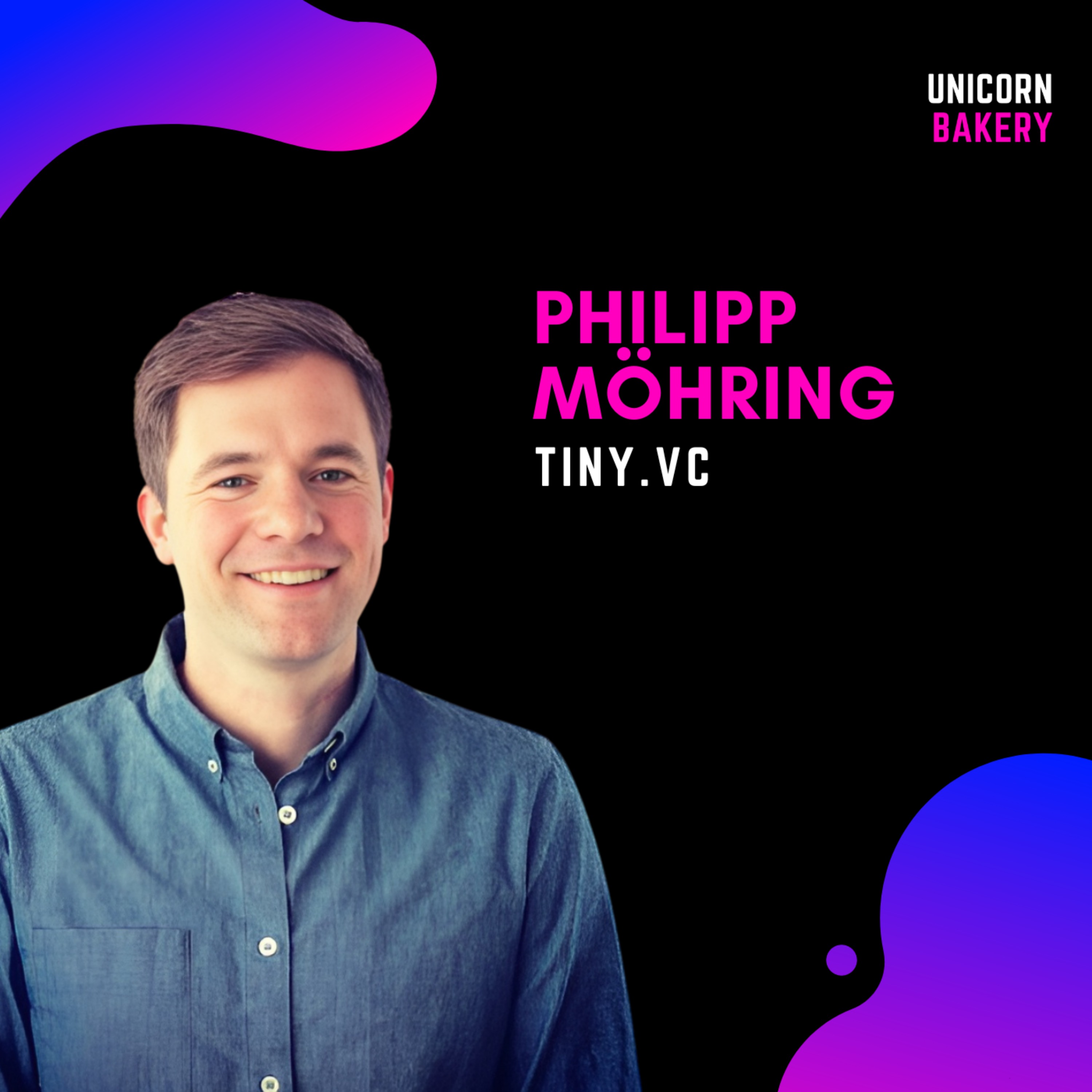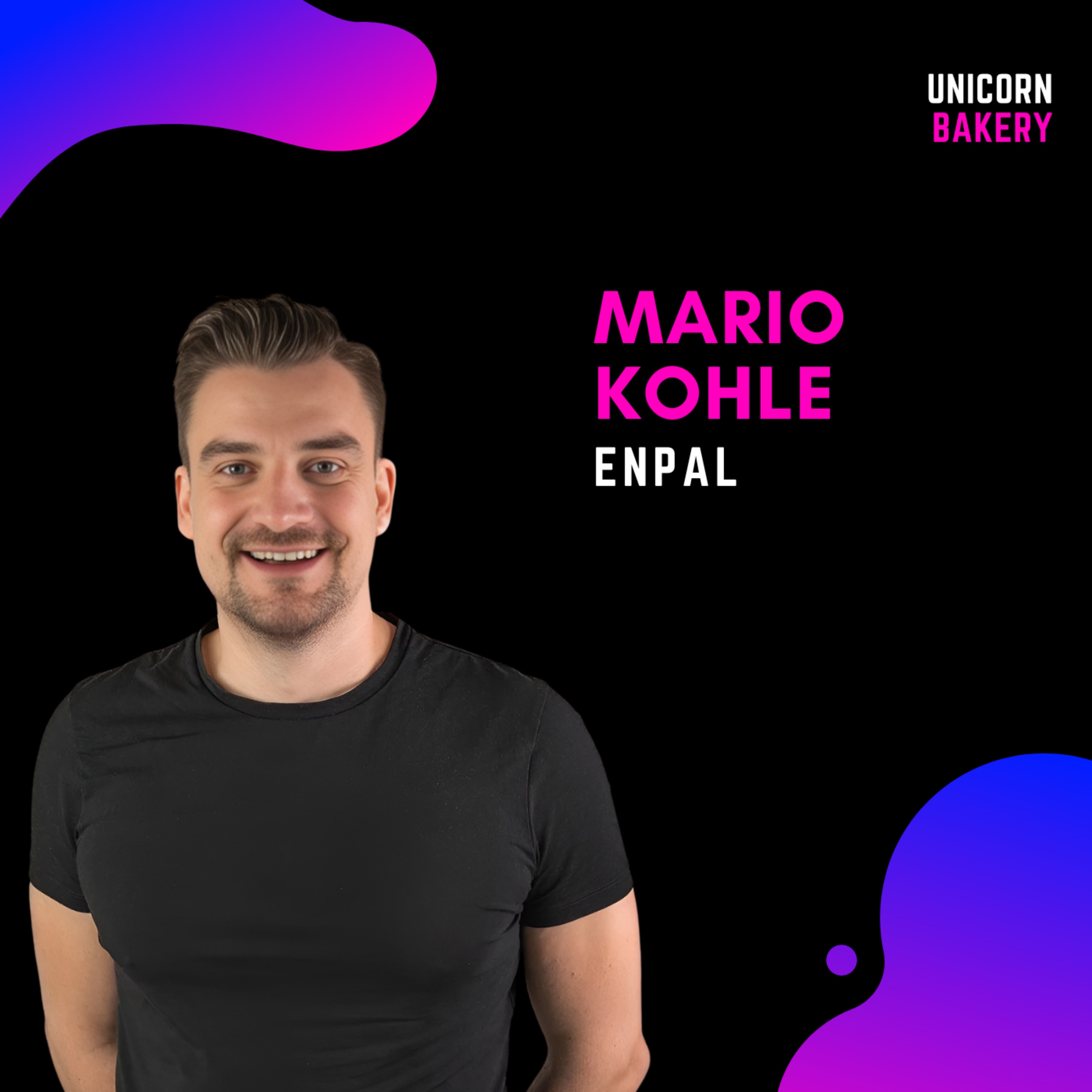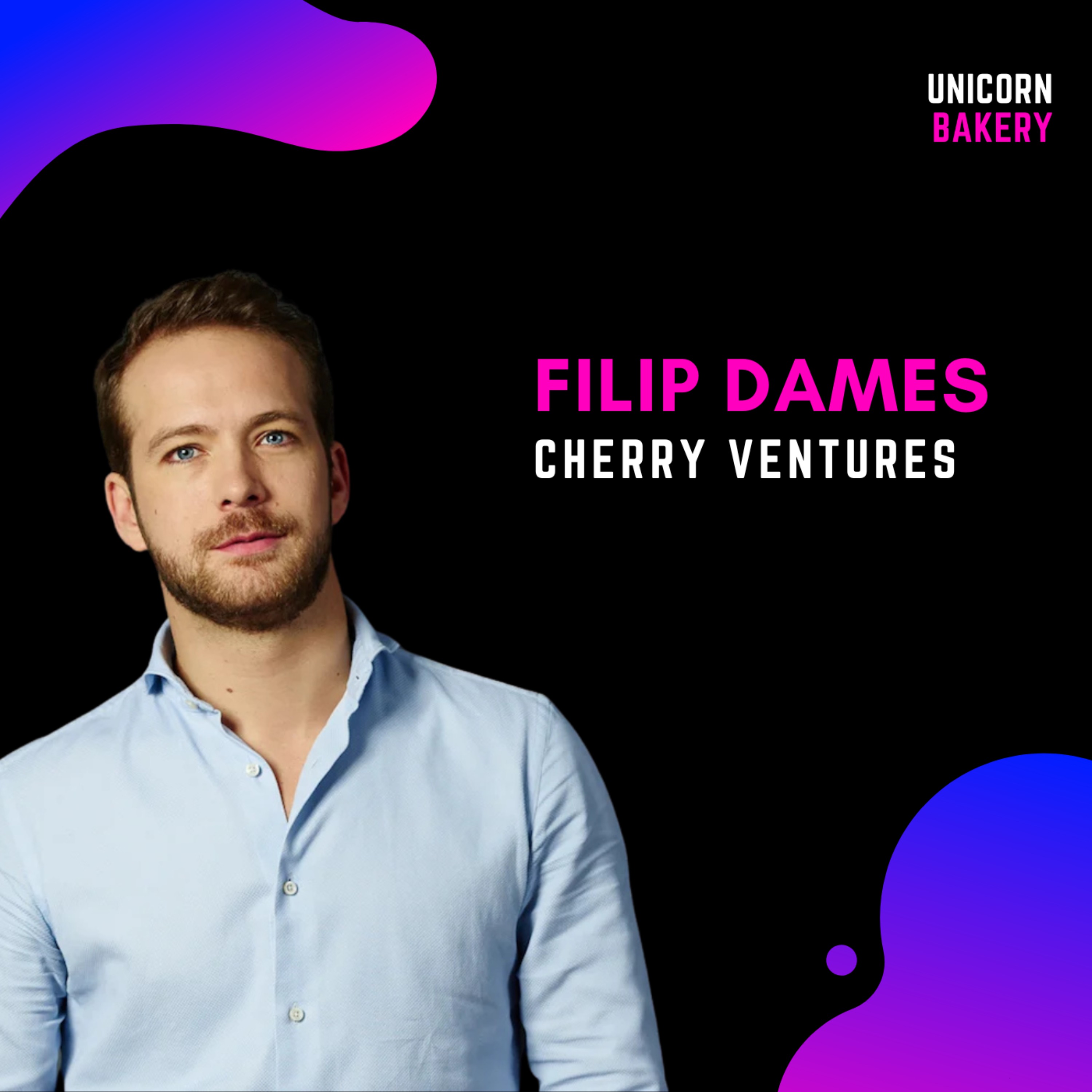From University Project to Billion-Dollar Exit: SIGNAVIO - Together As One – with Signavio Co-Founder & CEO Gero Decker
On March 5th, 2021, SAP acquired Signavio for a billion dollars – this marks one of the largest Tech Exits in the German market to date.
How does a university side project become a billion-dollar acquisition?
In this episode, Gero Decker, co-founder of Signavio, shares the incredible journey of building the company – from its roots as an open-source project to bootstrapping, scaling, and eventually being acquired by SAP for over a billion dollars.
Learn about the pivotal moments, the role of timing, and how a strong team culture propelled Signavio to success, even when the odds were against them.
What you’ll learn:
- How a university project turned into a profitable company
- Why customer feedback and bootstrapping were critical in the early days
- How creative lead generation methods (like the "Hare Krishna Method") made a difference
- Why team culture and timing played a vital role in success
- How the billion-dollar SAP acquisition unfolded and the dynamics of negotiation
MORE UNICORN BAKERY:
More about Gero Decker:
LinkedIn: https://de.linkedin.com/in/gerodecker
Website: https://www.signavio.com/de/
Where to get the Book:
Amazon: https://links.unicornbakery.de/signavio
Spotify Audio Book: https://links.unicornbakery.de/signavio-audio-book
Join our Founder Tactics Newsletter:
Twice a week, you’ll get the tactics of the world’s best founders delivered straight to your inbox.
https://www.tactics.unicornbakery.de/
Marker:
(00:00:00) Why were so many coincidences necessary for Signavio to even be founded?
(00:05:00) How did the Signavio story unfold?
(00:12:10) From open source to profitable company: The milestones
(00:21:22) Equity & founding team: The starting point for Signavio
(00:27:54) Prioritization & team spirit in a small team
(00:31:11) Product & growth in 2010
(00:34:46) Lead generation & the failure of conversion
(00:42:02) First Go-to-market motion at Signavio
(00:46:52) First customers: The challenges with Customer Success
(00:52:42) From bootstrapped to VC case – why now & what changed?
(00:59:13) Fast-growing company: How do you maintain focus?
(01:07:54) The impact of the COVID-19 pandemic on Signavio
(01:13:04) The Path & Negotiation to the SAP Acquisition
(01:17:14) The Future of SAP Signavio
(01:21:37) The Lesson: Lifting Up Each Other
Gero Decker:
[0:00] Do you know the trick for how to make great technology survive? Make customers pay for it. There's always more things that can go wrong than things that naturally or easily go right. I still lived in a super small apartment. I had toast and doona kebab for 1 euro 20 as the typical meal. I was really afraid to stall because I had seen friends who ran companies and they were not getting anywhere. The entrepreneurs, they couldn't see it. So if you build a company that doesn't produce revenue, it's just a dream. If things don't work out, we stop the whole thing and sell it, and nobody's sad about it. We had more than a dozen term sheets on the table. Normally, you would see a $3 million or a $5 million or a $9 million fundraise. Ours was $31 million, which was almost unheard of in terms of size. There would have been a hundred reasons why Signavi gets stuck at some point or dies and fails. So we grew from $40 million to then $55 million at the end of the year.
Fabian Tausch:
[0:57] And during that period, you got an email that turned out to be very exciting for the future.
Fabian Tausch:
[1:06] On March 5th of 2021, SAP announces the acquisition of Berlin-based startup Signavio for more than a billion dollars. And today we're talking about the founding years, the buildup, everything that happened prior to this acquisition. Today's guest is Gero Decker, one of the founders of Signavio and still leading the SAP Signavio unit until now, who wrote a book on the Signavio story. You can find the link to Amazon for the ebook and also Spotify for the audiobook in the description. And Gero was so kind to sit down with me to go through the inception, how a university project, an open source project turned into a company, how a company turned into a bootstrapped success case that then got an influx of money and grew to a certain point at which they got a message of, hey, I think we should talk, and then SAP acquiring the company. Without further ado, you're listening to the Unicorn Bakery. My name is Fabian Tausch, and here's Gero Decker and the story of the billion dollar exit of a company that probably should not have existed when we look back at Gero's childhood. Gero, welcome to the Unicorn Bakery.
Gero Decker:
[2:27] It's great to be here.
Fabian Tausch:
[2:28] When I read the book, one thing came very clear after the first chapters. Signavio is a company that nearly hasn't existed and wasn't established. Because foremost, because you might have not become an entrepreneur. So let's talk about that, because I think it's so funny to see how many coincidences in quotation marks it needs to build such a great company. So why was it not clear? Like what were the things that you were considering rather than becoming an entrepreneur?
Gero Decker:
[3:05] Yeah, I think, I mean, the common thing across all startups is that it's very unlikely that they exist. So I think we're not an outlier. It just takes a lot of startups to start for a few to arrive to a significant state. But for me, I didn't want to become an entrepreneur because I saw at home what all of the challenges are when being an entrepreneur and all of the things that can go wrong, right? So disgruntled customers, disgruntled employees, problems with banks, things not working out. So there's always more things that can go wrong than things that naturally or easily go right. So it's a constant struggle. And you really need to have a deep, deep passion for what you're doing to be able to pull through. And in my family, my father, my uncle, but also my grandparents, they were all entrepreneurs. And they had a deep-rooted love for the products that they built, which pulled them through. Because if you look at it from the outside, they got very minimal financial returns from this. They put in crazy hours. It was so stressful. It was a drag on health it was a drag on you know relationships so there's so many downsides to building a company that you rather have one or two things that really pull you through what.
Fabian Tausch:
[4:28] Were the feelings that you associated early on with entrepreneurship based on what you saw
Gero Decker:
[4:33] I found it odd that you would still do it because the odds that you make it are so low.
Gero Decker:
[4:39] And the stuff that you need to put in is just extreme. So, you know, while I was doing my PhD as a researcher at the university, I took a break and I started to work for McKinsey.
Gero Decker:
[4:52] And contrasting that with starting a company just felt magical. You get a phenomenal salary from day one. There was told me giro if you do a decent enough job you know after two and a half years you will get your first porsche as a company car and if you do everything right you will have assembled enough money after seven years so that you can retire or you choose to continue working right so and you only need to do you only need to be good at the job that you currently do and the job is there and the task is there and and the projects and the customers who will pay for it they're all there you just need to perform right and so this sounded so much easier such an easier path to success that just from a kind of risk return perspective it just felt very stupid to start a company so again back to what i mentioned earlier with with my family i think i fell into the same trap that i just got very fascinated with what we had built as an open source project and i wanted to make it survive and i applied the old trick you know the trick for how to make great technology survive no make customers pay for it and and this was our initial intention to make great technology survive and then finding customers and building a company around that were just kind of the means to that end so.
Fabian Tausch:
[6:12] You studied at hp hp hasselplattner institute And you mentioned building an open source project that then later turned into a company because you wanted to make great software survive. But from like finding the first project, finding the people to do it with, that's like a long journey. Where did it begin?
Gero Decker:
[6:36] So I would say the story of Signavi really begins when we started that open source project called Oryx at the university. I had a true visionary that I shared my room with, and he predicted a future where there would be no installed software anymore. There's nothing installed on your desktop except for a web browser. And this was a long time ago. This was 2006, so it's 18 years ago, ages.
Gero Decker:
[7:02] Very hard to imagine the world, but this was a world where Google Chrome didn't exist. This was a world where Microsoft's web browsers didn't support any open standards. HTML5 didn't exist yet. So it was very early days, but he was a true visionary. And based on that vision that he had, we decided we want to pursue it and test the waters with how that technology feels and what you could actually build. So this was the starting point for Signavio. And then the journey started. But as you mentioned before, there would have been 10 reasons not to continue it, but it just so happened that the right people met, that there was enough funding available at the university to hire a couple of students to help us, that there was fascination out there, that a marked momentum picked up. So only way later we realized that this was a thing out there in industry. So if you remember back to the 2000s, this was the time when Facebook was launched. This was the time when YouTube was launched. This was the time when blogs came about. This was the time when Wikipedia was launched. So the 2000s was the first, that was the time when kind of user-generated content, this notion of collaboration, of Web 2.0, then it moved into the enterprise with Enterprise 2.0. This was all happening in parallel. And, of course, we couldn't predict all of that. but we benefited from that.
Gero Decker:
[8:31] From that from that wave big time and it just happened to be perfect timing to come with a product like ours and piggyback on on those types of trends that happened elsewhere.
Fabian Tausch:
[8:41] So the unique insight was applications will be run in the web but from i've never heard of that to okay i can think about the concept to okay we go all in on that there is also a process that now feels super valid for everybody because sure we now use so many things in the web how did like did your roommate flatmate roommate my
Gero Decker:
[9:11] Office mate oh office.
Fabian Tausch:
[9:12] Office office mate convince you of hey this is something you actually want to have like and and want to see come well
Gero Decker:
[9:23] So he didn't need to convince me hard because i was i was an engineer by background So I loved everything that was kind of new and different and groundbreaking from a technological point of view. So it caught fire with me immediately.
Gero Decker:
[9:37] So could you have predicted that this is a big thing going forward? No, you can't, right? So there's always a thousand things that happen in technology and things that seem promising.
Gero Decker:
[9:50] And by the time everybody has jumped on it, you know, most likely you're too late. Right. And then it becomes an uphill battle because other people are faster than you are or have a better starting point. So in our case, it was perfect timing in the sense of that there were really few startups out there that leveraged web-based technology. In the book I write about, Rightly, which was acquired by Google and is now called Google Docs, as the first application that we saw. And it was really magic because it was so different than the web pages that you would see out there. Right so plus we made a couple of technological bets as well back in the days that were very beneficial so hagen my colleague he he hated microsoft right so these were the days when microsoft was like the bad the bad company and the and the great companies for for any technologists would be google and and to a lesser degree apple right so he followed everything that he read all of the google blogs of what they just built and all of the cool things that they did And so, for example, we made a critical choice not to build our product or our prototype at the time, not to build it on Flash. Flash was the dominating technology launched and promoted mostly by Adobe and others. This was the way how to build interactive stuff inside of web pages, right? But it was going against the principles of the web and the architecture.
Gero Decker:
[11:19] And so Hagen, he said, no Flash is evil, dominates today. It does like 80% of the interactive stuff on the web today. But he predicted that it would go away pretty soon because it was just flawed in some of his assumptions. And later, that was a technology called Silverlight. was heavily promoted by Microsoft as an alternative to Flash and appealed to the developers that were used to kind of Microsoft.
Gero Decker:
[11:44] Technologies from the desktop so but hagen said no we don't do flash we don't do silver light we don't do any of these technologies we only go for for open web standard and anything and only stuff that truly kind of embraces the openness and and and all of the core principles of of the web and everything that underlies it so but that was that was a that was a nice coincidence right and and And even as we build out the company later, we were tempted because the adoption of these things like what was later called HTML5 was not there, was not prevalent in the market. People still ran Microsoft Internet Explorer as the main web browser technology.
Gero Decker:
[12:25] And a couple of points, you know, in the history of the company in the early days, we even thought about re-implementing everything based on the technologies that Microsoft was using. In hindsight in hindsight we were very lucky that we didn't have the massive commercial pressure because commercial pressure would have said i still know i still remember there were a couple of deals and people tell told us we pay you 100k we pay you 100k subscription if only you migrate everything that you do to a microsoft centric technology stack and the money was lying right there and we decided against it because my technical colleagues said like this is this is a suicide mission right it will go away and because we didn't have investors we didn't have the commercial pressure really we said let's do what is technologically right and and in hindsight or years later that proved to be a phenomenal decision for the company but i would call it luck more luck than anything else you.
Fabian Tausch:
[13:22] Said it started with oryx the open source project how did out of two people in the office form a team that then worked on Rx and then at some point decided to turn this into a company because great software should stay alive.
Gero Decker:
[13:39] Well, so I always love to be around people. And so I could convince a number of students to join our project. So we launched, there were mandatory kind of student projects, end of study development projects for the bachelors. So every year we launched a new topic so that at least four or five students will work on the project, not paid. And then we would take all of the money that we could use that we had left in the research group. We used that to fund working students, to pay them for programming. And so the open source project at peak times had like 12, 15 contributors at any moment in time. So it was for university measures a pretty high velocity exercise because I just loved working on it. And I was successful enough to convince my boss, my professor, to channel the money to that open source project.
Gero Decker:
[14:38] But also, I always followed the principle, if there are additional great people that can help, why not get them on board? It's so much more fun if we can get additional great people on board who can help. And we all had a phenomenal time. the flip to the company really happened when my time at the university came to an end with my phd in the time of the main contributors who finished their master's degrees were slowly you know getting to an end we knew that you know if we go if all of us go and we just find a job somewhere the project will be dead so and we said hey we're in a moment of time so i was 27 No kids. I still lived in a super small apartment. I, you know, had toast and duna kebab for 1 euro 20 as the typical meal.
Gero Decker:
[15:31] Or the soups, right, where you're only the instant soups where you just put hot water to it. This was like my typical, this was my level of luxury in life. So I didn't need much money. And the others were even younger than I was. So we didn't need much money in life. And so we thought this is a good moment in time where we don't have that constraint that we need money. And we just have fun doing this. So why not try and give it a go? We can always stop doing it. we always knew that there are good backup options and we will always find a phenomenal jobs out there so the worst that can happen is that we waste a year or two of our life what.
Fabian Tausch:
[16:11] Were the milestones that you set to define if it's like a waste of time or not
Gero Decker:
[16:17] So so revenue was always important for us because we knew this is the only sustainable thing in the end and and the lifeblood of a company right so if you build a company that doesn't produce revenue it's just a dream and this was pre kind of the pre tech hype i would say this was the time of the financial crisis and, vcs were not there were not many and they were very cautiously giving out money so we knew that if we wanted to build a company it would have to be self-sustainable pretty much so so revenue was was the most important criteria but there's a way to cheat yourself into revenue and that is you can always rent out your best people for an hourly or daily rate to people because there's always demand for good programmers helping on projects so this is the usual way how companies then cheat if they run out of revenue that they rent out their people but revenue was one of the.
Gero Decker:
[17:17] Which strongly correlates that you actually have a customer who uses your product. And at the same time, we knew it was quite easy to get kind of government money. So coming out of university, there's a thing in Germany called the Exist Scholarship that is very easily available. And we said if we have one of these, ideally a combination, but one of them would already be sufficient to kind of survive the first 12 months. To get either government money or sufficient custom attraction with revenue associated to it, then we would keep going. But I was really afraid to stall because I had seen friends who ran companies and they were not getting anywhere. And I could see it. Most people could see it, but the founders, the entrepreneurs, they couldn't see it. They thought they were making great progress year of year, but they didn't. And then five years later, they were still in a very bad spot with that company and still working all night all day and still not making anything with our company so and and i absolutely hated that thought and i said you know i can easily waste a year of my life and maybe two but but anything more than that needs to be needs to see substantial progress otherwise i go do something else so what.
Fabian Tausch:
[18:34] Would be your recommendation for founders to keep sight of like being on track or also like being stall
Gero Decker:
[18:41] So i mean um customer customer attraction is everything measure customer attraction think about what could realistically be possible i mean we had the benefit that we started with the open source project so yes we needed to rebuild large parts coming from the open source world to the, to the commercial product but we could at least we had at least de-risked certain things we knew some things would work and we could even reuse some of the technology, large parts we needed to rewrite, but some of it we could reuse. So this is the situation that many companies find themselves when they start out, that they start from scratch, right? So then you can't aim for customer revenue right out of the gate, but you want to have maybe a customer or two who at least like your idea and who give you feedback. And as you build out your first prototype, stand by your side and tell you whether it's going in the right direction or not. but but as fast as humanly possible you want to aim for revenue customer traction that is measured in the euros that exchange hands why.
Fabian Tausch:
[19:45] Signavio called signavio not oryx
Gero Decker:
[19:47] Oryx was trademarked we would have loved to use the name oryx we liked it the gazelle we used the gazelle in the logo then later but oryx was trademarked and i remembered the story of a friend jan schulzof And he had a company called Mannschaftskabine.de, I think that was the name, which was like a social network for amateur soccer players. And then a damn law student from somewhere registered the trademark and then wanted to get money out of him. But he didn't have the money or felt it was the wrong thing to pay money. So he needed to rebrand his whole company to, I think it was called then Spielerkabine, which was a massive effort. And he lost a lot of users, and he needed to rebrand everything, and it was a massive pain. So I thought, I don't want to go through that pain. I want to start with a company name that I can be sure of, that nobody will take from me. I also spent some time in Australia, and there's an interesting trademark issue in Australia. You know how Burger King is called in Australia? It's called Hungry Jacks.
Fabian Tausch:
[20:55] Oh, yeah, I saw that on TikTok or something. Yeah, I remember.
Gero Decker:
[20:58] Because Burger King, unfortunately, doesn't own the trademark for Burger King in Australia. So they needed to rebrand or use a different brand.
Gero Decker:
[21:08] And I didn't want to run the risk that we needed to rebrand to Hungry Jacks or something along the lines. No, so we choose an entirely new name. Signavio comes from Signpost. Signpost in Italian is Segnia Villa, which changed two letters. And Signavio when we first looked up on Google there were no hits and there were a couple of typos that led to but there were clear typos there were eight hits on Google and all of them were typos so nobody used the term Signavio before and and funny story about the typos most of the typos related to an Italian company called Avio aircraft engines and the first customer that we signed in italy was avio so i went there they're based out of turin they i think they emerge out of fiat produce aircraft engines and i ran the meeting with with with a bunch of italians in the room and then we did the demo and presentation everything at the end of the meeting they say gero we could have skipped the whole meeting i said what do you mean paula and she said gero when i saw your name signiavio what a beautiful match with us avio avio signiavio it's a match made in heaven no matter what your product does we would have bought it anyways little side track on naming that's.
Fabian Tausch:
[22:29] Amazing so back then it wasn't such a science as it is today with like who is the perfect co-founding team and who is like how do we split equity and everything so So how did you, like, you said there were, like, many people contributing to the open source project. How did you determine the then founding team for Signavio? And then also, how did you approach equity? Because it was back then not as explored as it is today.
Gero Decker:
[22:56] Sure. So Nico and Vili became the co-founders because, first of all, they had been there from the beginning. And they were also the ones that were most advanced in their studies and closest to finishing. So some of the other folks we discussed with, whether it makes sense or not, but they were just there. They wanted to complete their studies. And that moment in time would have been so far out that we felt that it's a wrong thing to do. So Nico and Willy, they became the co-founders, then myself. And then I recruited Torbenen, who was the only one among us who had a real job already. He was a pre-sales consultant, so he knew how kind of sales processes worked. He had, he was in a related field, so he had seen a lot of RFPs, a request for proposals where customers list their requirements lists. So we could use that as a direct input also for our product development.
Gero Decker:
[23:48] To know that there is a certain category of user demand or customer demand that we would actually be able to position for. So yeah, no, that was really the decision. In terms of equity, and my professor, he also joined as a shareholder, T.S. Veska. In terms of splitting up the equity, that was an interesting discussion because somehow it felt wrong to just split it up kind of equally among us because we had very different starting points. Nico and Willi, they had programmed like crazy for two and a half years already, but they were the most kind of junior folks in the mix. Torben, he was the one who was not involved before, but who had a very, very significant experience through the job that we was currently in.
Gero Decker:
[24:33] Matthias Veske, it was clear that he wouldn't be operationally part of the company. And today you would call him a business angel investor. But back in the days, it was just, he's one of the co-founders.
Fabian Tausch:
[24:44] How much did he invest because you said business angel?
Gero Decker:
[24:47] Well, he didn't invest anything. He invested the nominal amount, which led to a lot of frustration later on because he didn't contribute operationally and he didn't invest more money than we did. And he was still a co-founder and he benefited greatly from it. Anyway, so then a friend of mine, he was working for a VC fund as an investment manager. And he had this wealth of knowledge and he gave me, he sent me an Excel file that he had found in a blog post, which was called cutting up the founder's pie. And you could, it's a basic Excel. And you choose what are the dimensions that are influencing factors. And it came kind of preloaded with some, which was, I don't know, domain expertise, opportunity cost, kind of involvement. So it makes a difference whether you commit 100% of your time versus there is a co-founder who only goes in part-time and has three other side projects, those types of things. And then the exercise was that every one of the co-founders kind of gives grades, if you will, or... You know, gives a number for each one of the categories for everybody else, well, and yourself, right? And then what was interesting was that the numbers that everybody put in were actually quite similar. So we only, we had a difference of maybe a percentage point or so per person that the measures differed.
Gero Decker:
[26:14] The one thing that we underestimated was that, a couple of things that we underestimated so the one the one mistake that we did was we consider a kind of equity split as something that is set in stone right honestly we didn't look that much out into the future we probably thought maybe three years out into the future but what happens in a startup that runs longer than three years realities change all the time right so i think the much better way to do it would be to say if i would do it now i would say let's distribute let's say 30 40 percent of the equity pie right now because this is what we have visibility into with kind of current state but then the remaining equity portion we leave for until let's say in two or three years from now and then we sit together and we discuss what would be a fair equity split.
Gero Decker:
[27:05] For for the next tranche of 20 30 40 percent and for that moment we make the the right choice how we want to distribute it because the setting in stone right from the get-go makes it very hard to kind of also take away shares again from from people if you feel it's it's unfairly distributed i mean investors they sometimes do this they do this founder the the founder share vesting so they take away shares from you if you leave too early which is i think a sound logic at least if you have early stage investing but what it doesn't do is it it doesn't do the kind of equity distribution right it just takes away from you if you leave anyways so no that's that's a touchy subject.
Gero Decker:
[27:50] And but the nice side effect of having to work on kind of equity split is that you are forced to have the discussion what are your what are your objectives with this whole thing what is the intended contribution that you have how will you react if this thing doesn't work out in two years from now. What will you do? Will you jump ship or will you try no matter what? And these are very, very important and very healthy discussions that you should have very early on when you found a company. And we didn't have that to all of that degree. So we had a general agreement that, if things work out if things don't work out we stop the whole thing and sell it and nobody's sad about it which is also important because if you have one person who wants to do it no matter what and the others jump ship what do you do but in our case we said if it doesn't work out we just sell it off and that's it and we we part ways but other than that we were not really good at kind of really spelling out what were our expectations and we were lacking reference points and experience so we couldn't have done it better but but we did too little we.
Fabian Tausch:
[28:58] Will come back to that but you mentioned there were two goal posts and one of them has to be hit it was either first customer
Gero Decker:
[29:07] Or government.
Fabian Tausch:
[29:09] Grants which one did you pursue first or did you pursue both like how did you prioritize with a small team
Gero Decker:
[29:15] We did both at the same time there was a university, team that helped with these grants so we always seeked help wherever we could and and it was part of their job to kind of help us build a business plan and apply for the grants and know the people and so on so we did that and then and then customer we pursued at the same time right so we started reaching out to folks showed our prototype to whoever we could our our network was very limited so aok who became a first customer was really one of the very few customers that we had interaction with previously so we got lucky that they said yes this is actually pretty cool and we want to try this so we might have had maybe one or two or three others as as as candidates but that was about it so it's not like we had hundreds of companies that we could like call through and and and pitch to so we got very lucky did.
Fabian Tausch:
[30:08] You remember the feeling in the team and the spirit once aok signed
Gero Decker:
[30:13] It was phenomenal we felt like we're the kings kings in the world, and it was for us so it was close to 100k commitment from them for a company that didn't even exist for a product that was not ready yet but it was a commitment once the company is there once the product is there they would live up to the promise and and buy it from us so i mean if you're if you're a bunch of students essentially who have no clue about anything who have no we didn't even know how much these types of things should cost.
Gero Decker:
[30:45] And I mean, one of the reference points is a license for Microsoft Office costs like 150 euros, right? So this was kind of the, this is how much software costs. And it felt crazy that people would pay more than 150 euros or 150,000, 150 euros for software. And then we just aimed very, very high, kind of with the principle that rather kind of, you know, go back from the high price than come in too low. We had still quoted way too low, we found out. But yeah, no, we felt like this is phenomenal. On the other hand, we also knew that this is only a temporary effect, right? So this revenue will help us fund the next couple of months. And then we would have to find the next customer to go from there. So it was always, we tried not to think too far ahead into the future, right? If you think, because then you stress yourself out. So for example, to AOK, of course, we promised them that not only do they get a phenomenal product, but that of course we would maintain and further build it out over time, right? Which was a promise that was impossible to substantiate because it would mean that in order to live up to the promise, we would have to find customer number two, three, four, or five six seven to be able to live up to that and we didn't know whether we would ever find that or whether aok is a one-off but we thought hey let's deal with the problem once we have it for the time being we've we promised a phenomenal product and we delivered one, and and then we take it from there and we see how we go today.
Fabian Tausch:
[32:15] Everything is about annual subscription was this 100k one-off or was it 100k
Gero Decker:
[32:19] Annual yeah this was 100k one-off plus 20k annual And then the procurement team, they asked us, so, and when does that maintenance, that maintenance subscription is 20K, when do they kick in? And we had no clue about anything. So we said, For the first year, it's included, and then it starts in the second year, because it was kind of counterintuitive to us. Why would you charge that maintenance piece for the first year already? Which was the norm, but we simply didn't know. So they looked at us kind of from the other end of the table and couldn't believe their ears that we would just gave away 20K like that. No software vendor would give you the first year of maintenance for free. Nobody did that. So they just saved 20K right there.
Gero Decker:
[33:03] But yeah, no subscriptions were still early stage. I mean, there was really only one big company that sold subscriptions, and that was Salesforce. And at that point in time, they still were not serving large companies. Salesforce at that point in time was really a small business, small to medium business product. Only later, they managed to sell into large accounts and make significant deals. So even Salesforce was a product that you bought for 20, 30, 40, 50K maximum. And so this was our perception of what the difference with cloud software was. On-premise software was just very expensive, and cloud software was serving a different segment in the market, the lower end of the market, but came in way cheaper in terms of deal sizes. So this was our perception. And that only changed over time. Right so then suddenly other companies like viva or or box and others they as they expanded to europe suddenly were able to sign you know six digit subscriptions and salesforce became bigger and so on but that was not the case when we started how.
Fabian Tausch:
[34:12] Long did it take you to win the second and the third client
Gero Decker:
[34:17] So second and third were, that was a couple of months in, but these were like super tiny deals, like the usual kind of one user sign up on the website type deal that were kind of nice to see that people actually from a 30 day trial would be willing to continue using it for a user or two.
Fabian Tausch:
[34:33] So you did product that growth already back in like 2010?
Gero Decker:
[34:37] Yeah, so that name didn't exist. It was the free trial mantra that was the norm, SaaS, at the time for the very few companies that existed. But that, of course, didn't move the needle at all. all right so our cheapest subscription was 360 euros per year this was the cheapest product version that we had for one user and with 360 euros per year i mean you can't afford anything right you can afford toilet paper for the office that's about it so so we needed we were heavily relying on these customers who would give us you know many thousands or better tens of thousands of euros. And there were very few of them in the early days, right? So there were the second really big customer for us was United Internet. Others were companies like Edeka or Axel Springer and, you know, those types of kind of mid-sized companies who would sign on either kind of one-off deals in that range, let's say 40,000 plus, or subscription being, you know.
Fabian Tausch:
[35:48] Five-digit so i refer to one of the chapters in the book where you Yeah, I described the Hare Krishna method on, in the end, generating leads. So you were quite amazing with generating cheap leads, but you were not as amazing in converting them at first. So take us back to how did you, like, what were the methods to back then generate leads and like on a very different way that back then? And then also why didn't it work out to making them customers
Gero Decker:
[36:27] Yeah i mean we lived of the regime of not having any budget for anything right so we try to do whatever we did without spending money so the easiest thing in the early days was to convince people who were bloggers in the space who wrote about you know our category to ask them to do a product review or to you know talk about a case study that we did so this was the first you know set of things where we put quite a bit of effort in especially as the product launched and it was new and it was perceived to be new that we try to make sure that we that we get attention for that new product through these channels we we went to events quite a bit that whatever wherever we could at least afford it and we would negotiate massive discounts so sometimes we got like 70 or 80 percent discounts because we convinced people that what we had to offer was something completely radically new in that space and the event would be so much worse if they didn't have that new and shiny thing there, right? But having said that, we are a new company and we can't afford anything, so please allow us in. Give us the worst spot that you have.
Gero Decker:
[37:41] Give us the smallest presents that you can offer to us, but give us, please, 70% discount, and we can afford 1,000 or 2,000 euros of sponsoring maximum. Not more than that. And the Hare Krishna method that you referred to was really a coincidence that we discovered that. So we had at the university already created a poster that people could we put it out as a pdf on the web on the on the university home page that just explained this whole this you know process modeling thing so all of the kind of notational elements and what they mean what's the difference between a task and a decision gateway in the swim lane and the customer interaction and so on what's the difference between an automated task and a manual task so all of these things were explained on that poster and was nice looking. So we had a very talented colleague who was good in designing stuff. And in the PDF version, you could download it and then print it yourself.
Gero Decker:
[38:41] For special occasions and for special friends, we produced, we went to a copy shop around the corner. And then for a couple of euros, we would get like a big and colorful version of it. We had this colorful version also in our office. Whenever somebody came around, they said, oh, we want to have this poster too anyways and this one day we looked into the log files of the university server you could just click on the link and you would get the pdf right away this is how you did it on the university system so we had no clue about what lead generation actually is right and then only somebody else who we taught we told him that we had 70 000 downloads for that.
Gero Decker:
[39:20] Stupid poster. And he said, Oh, you collect 70,000 leads. And I said, lead, what is that? And then he only explained, you know, what lead is like a digital representation of a business card, it has a name, it has an email address, has a phone number, has a company name, and so on and so forth. Because then you want to be able to send these people an email or call them, or send them a letter.
Gero Decker:
[39:44] And so but what we couldn't do with the university homepage is just to put a registration form before it because it was a university asset and we felt bad and the universities would not be allowed to generate leads for a private company so the trick that we did was we said okay people love this printed physical version of the poster and why not offer that um so you need to sign up on the web page and then we send you for free that that physical copy. It was super cheap for us, right? Printing that poster was like a euro and then paying for postal services was a euro 30 or 40 or something. And then when you needed an envelope and then you needed a person to pack those envelopes and that was about it. So it was super cheap. But the effect was that people loved it. People loved it. It was like thousands and thousands and thousands of people. So, we did this like once a week. We batch processed these orders on a Friday afternoon with a couple of beers, and it was massive piles of people wanting to have that damn poster. And Hare Krishna method, because it's basically the principle of you first give before you ask to get, right? So, Hare Krishna, they used this method of handing out roses in airports, they would just go there and say fabian can i give you a rose and you would say and how much do you want me to pay for it no no no it's a gift.
Gero Decker:
[41:10] You probably have a loved one at home, right, now that you just arrived. Probably you have a loved one at home that you would like to give the rose to. And you say, really? Oh, that's very kind. That's nice. Yes, I have somebody. And I'll gladly take the rose home with me. And then the person would say, who are you? To hand out roses. And then, yeah, I'm a member of the Hare Krishna community, and maybe you want to hear about it. Yeah. And so suddenly this was a very cheap way of engaging in discussions for the Hare Krishna community, and they did that for some time. I read about it in a book. I hope I didn't mess up the story and it actually happened that way, but this is at least how I remembered it. And it was very much what we did. We gave gifts to people, and then in return they were so grateful, they were so thankful. So we called them two weeks after we sent the poster and we asked them, did you receive it? Where did you put it up? Did you put it in your bedroom?
Gero Decker:
[42:07] No, no, no. It's in the office. Ah, and so you're interested in this process thing. Yes, yes, yes, yes, yes. We have a big program currently running. We're trying to, I don't know, merge two units together or we have this new technology and this creates all kinds of change. Ah, interesting. Tell me about it. so how far along are you with that project oh yeah yeah we're just getting started and we're thinking about how to do this and we thought about doing this in in this process oriented way and maybe we can even use tools and you say oh yeah and we have a tool it's called signal really, can you send me any information for it then this is how we got into a lot of conversations, in with a very positive spirit so we didn't approach them and said i have something to sell to you no i have a gift for you and what do you want in return nothing it's a gift so that was a that was a nice way of generating a ton of leads.
Fabian Tausch:
[43:02] Today, we call everything that starts with generating leads to closing customers like a very oriented go-to-market motion and like very specifically defined. As we already know, it was not the time where all these principles were perfectly laid out. So what was your way from demand generation to then also closing customers and stumbling into building the go-to-market motion?
Gero Decker:
[43:28] Yeah. I mean, we would, so with the posters, they were one of our biggest lead sources together with a free 30-day trial, 30-day trial signup. And we would just call people, right? And if we couldn't reach them on their phone number, we would send them an email and ask, you know, the same thing and ask for a meeting. So we had a ton of interest in the things that we did. Also the events that we went to, there was always a ton of interest, but we had no clue about all of these things like ICP, right? What is that? I heard the term ICP a couple of years for the first time, right? What's your customer profile? I had no clue. I had no clue in general, right? Are we rather suited for hospitals or for utility companies or for banks? I don't know.
Gero Decker:
[44:22] Everybody has business processes so in general that should work for everybody but would i know who's actually willing to pay money and you know what are the trigger points for them i had no clue so this was also wonderful learning experience for us to stumble into all of these different personas and to stumble into all of these different use cases and it was a it was a conversation you know every time different because for example at axel springer the first person we sold to was the it security manager. And he needed to prove that certain controls were in place. And one way to do that was to use our product. How many times did we sell to IT security managers afterwards? I think not a single time, right? So was this a pattern? No. A-OK was about a merger of two organizations, right? And the people running that were the ones buying our product. Was this the, you know, M&A? Yes, that happened a couple of times, but how often does M&A happen, right? It's not something that you have every day. So it was like shouting out into the forest and then just waiting for whoever hears it and comes back, right?
Gero Decker:
[45:31] That was a little bit of a challenge. And then from a sales process, we were just very nice to people, right? Of course, we tried to convince them that we have a super cool product. But what we didn't understand was, you know, we never asked the question, do you even have budget, right? Or we never asked about timelines. We never asked about any of the basic questions that you would ask when you want to progress an opportunity. We would ask, so how do you like it? Oh, it's great. Okay, cool. so you know how many how many licenses do you need oh yeah very difficult and i was just window shopping okay so then maybe we can talk to one another in three months from now how does that sound yeah great great we talk in three months and then you talk in three months and you have the same conversation that.
Fabian Tausch:
[46:18] Sounds like i did sales for a long time
Gero Decker:
[46:20] Right so i know so this is this is why we got and we were aware that that we were not progressing well and if you do it over the phone that's still okay because you can do so many phone calls during the day, but more a web meeting. But if you do physical meetings and you have meetings like this, it's horrible. You go there and then they love what they see and they like your product and then nothing happens. And then you go there again three months later and still nothing happens. It's like very frustrating.
Gero Decker:
[46:48] And this is when we got Garrett DeVay on board, who we met through a colleague or a partner. And he was always very methodological about sales, right? So he always had a clear picture in mind what he wanted to get out of a meeting. What were the things that he wanted to hear from the customer to make this a good meeting? It was not as refined as what you would today find in playbooks or medic or whatever type of methodology that you apply. It was less refined. But he was already saying, Gero, the worst thing that you can do in sales is waste time. Waste time with the wrong people on the wrong topics. You know, you better talk to the right people about the right things and get the right outcomes of it. This is what distinguishes success from failure, right? Because you can throw as many people as you want. If you do it in the wrong way, well, you will just waste time.
Fabian Tausch:
[47:51] So customers started to come in. What problems did that bring?
Gero Decker:
[47:55] Well, first of all, it brought customers, which is great. Feedback for the product, revenue. No, that was great. I mean, the only challenge is that when you set yourself in motion as a company, especially if many of your first customers have one-off, give you one-off revenue, that you always start the next year from more or less zero, right? You start the year with all of the subscriptions that you have, plus for cloud and the maintenance subscriptions that you have, but you basically have to backfill a lot. So, so the beginning of the year feels horrible because again, you have built a team and you constantly add things only get more expensive. They never become cheaper. They always only get more expensive. So, So the trick is that while you accept and you acknowledge that everything gets more expensive every year, you just need to outpace it with a revenue development. So a customer, signing on a customer basically gives you the pressure to sign on two more customers tomorrow. That's the only negative thing, I would say. Other than that, it's phenomenal. I mean, this is the lifeblood of building out a company to have, you know, happy customers, good relationships, constant feedback, constant engagement.
Fabian Tausch:
[49:10] I was referring a bit to the customers also need treatment and also therefore pushed you and the whole organization to think about how do we help our customers to also succeed with the product and build on top of it and make use of it so that they do not churn.
Gero Decker:
[49:29] Yeah so we were very reactive for a long time right so we knew and from the very first version we knew that there is a thing called a support hotline or a way to issue tickets right so this was built into the product right from the get-go and it was very easy it was very prominent in the product so so customers used that heavily and so that reactive mode of providing support we knew we needed to have we didn't want to afford dedicated people for it or and also i thought that nobody exists who would want to do that job kind of from morning to evening so we distributed support tickets and gave every you know one person per day at the task of issuing of of handling support tickets and incoming phone calls but only much later a lot later we figured that there was a big gap between support on the one hand, which was the reactive answering of issues or questions, and the proactive piece, which was sales. But sales always only focused on those accounts where there was a sales opportunity. So this was what we learned from Garrett. Don't waste time with scenarios where you simply can't make any money or any additional money for the next two, three years.
Gero Decker:
[50:49] And if you can't make any money in the next six months, deprioritize as well right and put it to the backlog and come back six months later so so a big observation was that there was something in between and customers were slowly falling between the cracks customers who never complained where the product kind of did what it was supposed to do so there was no problem with the product but there was also no upsell opportunity anytime soon they were you know sufficiently equipped with licenses. So then in that situation, nobody will talk to them.
Gero Decker:
[51:24] They would still come to our events and sign up for webinars to see what's new and so on and so forth. But we would never proactively engage with them. So this is how we, based on a couple of customer examples, one most prominently that was about to churn. They told us, we love your software and it does everything it should, but we're not getting the value out of it as we would hope to. That's why we're going to stop using it going forward. Right and then we noticed wait a second first of all we didn't have a clue that they were struggling to get value and second of all we didn't even have a person that could deal with that type of account so this led to testing the waters or or you know doing research on the internet how other companies do it and i found a thing called customer success management in on the west coast right so that was a term not widely used something very new and gainsight as a company was heavily pushing that concept based on the observations they had what worked for Salesforce.
Gero Decker:
[52:25] They were one of the first ones to kind of introduce that customer success management role. And Gainsight was the company to promote that to the wider community. And we took on all of that inspiration and tried it ourselves. And it worked wonderfully because suddenly we had onboarding journeys. Suddenly we had health scores for companies, right? So we could tell on a score from zero to 100, how healthy is a certain account? And we could track that. And so we wouldn't lose the ball on anybody, we would check in at least with the bigger customers. But.
Gero Decker:
[52:55] We would take care of what can we learn from, you know, how they log into the system or what features do they use and how many users do they have active on the system? Or is our main contact switching jobs? Because you can see that on LinkedIn. Suddenly all of these digital signals we could use to proactively engage and say, you know, dear customer, have you progressed on this and this? What is going on? I've seen there are some changes. you know are there new team members that we should onboard to the product to make sure that that value and usage continues and so on and so forth so so this was a big big revelation for us to go down the path of customer success management so.
Fabian Tausch:
[53:36] You started to close more clients because you're developing a sales motion you are profitable as a company from day one you
Gero Decker:
[53:45] Because we didn't spend any money additionally.
Fabian Tausch:
[53:49] But at some point so profitable and you never took on investors money to that point at some point you did what changed
Gero Decker:
[53:58] So so we did talk to, to business angels but it always felt like odd conversations so there was a business angel network here in berlin and we went there they had like a pitch night but these were people who were none of them had a or very few of them had a digital background right for them this was all of a kind of a lifestyle thing to have business angel investments and they did business angel investments to brag with their investments in front of their friends so and it felt like a horrible waste of time we see is very few and it was not a mature ecosystem in in germany and in Berlin in particular.
Gero Decker:
[54:40] So what changed was, I think, Julian Riedelbauer. He built an M&A advisory called Pure Equity and then became part of GP Bullhound. He's now with Drake Star. But throughout his GP Bullhound days, I liked him as a person a lot. And he told me a lot about, venture capital and how it all works and how deals worked. And he had done a fundraise for a games company out of Hamburg, I think. And they had done something interesting that I had never heard of. And that was, they did fresh money in primary investment, but they also did a significant portion of secondary capital. So where the founders sold Chaz as part of the fundraise, because that games company too was profitable and didn't need all of that much money but they.
Gero Decker:
[55:32] Saw it as a good opportunity to bring some money behind the firewall and get some professional help on board and we were in a similar situation because torben one of my co-founders he wanted to gradually move out and as part of that he wanted to sell some of his shares as well and we couldn't afford buying him out so so all of that combined plus we had launched in the u.s a couple years prior. And we felt like we were not as professional as we could be. And, you know, the quarters were not very predictable that we had that. So we said we do, you know, the secondary portion, mostly for Tom, combined with rebooting the US expansion, and getting general help for how to build the company properly. These were all of the motivations to go into that, into that process, right so Julian helped us it was a structured process with many many many funds involved in that process and that produced quite a significant quite a significant fundraise at least for that time this was 2015 so big funding rounds were still very rare right these were the days where I don't know my taxi was a blowout success right and I think they sold for like 10 15 million or something like that. StudiVZ, they sold for 90 million euros, which was like the unimaginably large exit of a company.
Gero Decker:
[56:53] But this was kind of the range of company valuations. And the fundraisers that happened in Berlin at the time, normally you would see a $3 million or a $5 million or a $9 million fundraise. Ours was $31 million, which was almost unheard of in terms of size. But it also came from a source who happened to do one of their very first software investments in Germany, Summit Partners. So they were a U.S. Fund, and they had done most of their investing in the U.S., but they had a team where one of the investment managers was German, another one was Swiss-American, and they had an eye on the German market. They operated from London, and they were keen to do their first investment in Germany. So we were the perfect guinea pig for them to deploy some capital into Germany.
Fabian Tausch:
[57:45] As far as I remember, it was at a $72 million pre-money, and it wasn't the highest offer you had.
Gero Decker:
[57:52] No, exactly. So we had many, many offers. We had more than a dozen term sheets on the table. And the spread was crazy. If I remember correctly, the lowest, I think, was a $20 million valuation. And the highest was a $90 million valuation. But the $90 million valuation came from a strategic, was one of the big four companies. It was a great opportunity to meet their CEO and their executive board and everything, because they were a partner anyways. And they were looking, they had a couple of forward-looking senior managers, who wanted to get away from kind of just earning money by the hour, which is a classical model of the big four, more to in what they call an asset space or asset-based revenue stream. So where they sell subscription software, basically, alongside with their services.
Gero Decker:
[58:38] But they were not ready yet. They're still struggling today. They all have a fundamental problem, these big four, because they have a dividend payout scheme to their partners. And when you exit your operational role, you typically hand over your shares, you sell your shares. So they all look at the dividends and not on kind of increasing enterprise value for their consulting company. And this is a massive barrier to anything that invests well well into the future so there was a structural mismatch between kind of what they intended to do and how the rest of the partnership thought and they were just incredibly slow so so that didn't that didn't go anywhere but we also had another private equity firm that gave in i think a similarly high i think 82 85 million a bit in but they couldn't help us on all of the strategic topics like US expansion and kind of bringing the company to the next level. They were kind of a boutique private equity house. They had previously made a lot of money with Wirecard and wanted to reinvest the money. They were one of the beneficiaries of the Wirecard story before it later collapsed. But it was a small boutique and private equity house. And it was just for us, not as of a good fit like Summit Partners. They were just stellar in all aspects.
Fabian Tausch:
[1:00:03] Not only through this investment but in generally signavio accelerated and grew and you had co-founders leaving based on the transaction the company changed grew further in headcount and everything also like of course arr and revenues And we're propelling forward a bit because on the one hand, we have to leave some chapters to the book so that people can actually read it and enjoy it.
Gero Decker:
[1:00:30] There's a lot to discover.
Fabian Tausch:
[1:00:30] So therefore, and on the other side, you as a founder and CEO had to step up your game. You had to figure out how to accommodate change, how to stay on top of things. What was the process from like yeah we're a company to we're a fast growing company and i'm not sure how to stay up with everything
Gero Decker:
[1:00:58] Yeah so there are a couple of phases so in the beginning it's really happy go lucky right so it's us founders we have no board we have no outside investors we have no kind of seasoned executives with us in the leadership team so So this was kind of phase one. Then phase two is when the investors came on board and they already started giving us fire, right? Because they demanded, they came in with a big investment and had a serious valuation. And their expectation was that we would live up to the standards, what they expected. And they told us something as well. they said, Gero, you're small today, but we want to start treating you as if you were a public company as soon as possible. We want to see predictability. We want to see professional management. We want to see governance structures. We want to see reporting. And we will start treating you from now on as if you were there. And this was a big step up for us as a company. So this was, for the first time, the demand to run the company like a true company before it It was a well-run hobby project, if you will, with a lot of intrinsic motivation and people just doing the right thing.
Gero Decker:
[1:02:13] And then the big next turning point was when we had like 50% or more of our leadership team being seasoned executives from the outside. None of them had been founders themselves. So they were all used to high growth businesses and had a lot of experience with startups for sure. But none of them were founders themselves. But they were used to bringing rigor and professionalism, cadence, velocity, throughput to focus to the company. And they demanded from us that we behave the same way. That it's not a happy-go-lucky. We love each other. We all have a good time. And this is also a much fun type of approach. But they said, we're here to be vastly successful. We were here to build the most phenomenal company ever. And this is how we should treat it. So that was a big learning curve. I always had the privilege that, well, first with the investors, they were so much more experienced than I was. They had seen so many companies. They were in the game longer than we were. The chairmen that I had, I had first Leo Apotheca for a couple of years, and then Jeff Barnett, who was the CEO of SAP, and then later Hewlett Packard. Jeff Barnett was the CEO of Demandware, which sold to Salesforce. So he became kind of like, you know, one of the top leaders at Salesforce.
Gero Decker:
[1:03:36] And these people were all great. Plus then the kind of senior executives that came on board into our team, they also had like decades of experience, right? They had seen it all. And for me, this was a great learning opportunity. But while with the investors, they demanded me to run the thing and to lead, my executives demanded that I would leave them alone. Because they knew what they had to do right and they demanded maximum autonomy and freedom, for whatever they found best for the company which worked well for large parts but which also led to a large disconnect in some areas where suddenly we went off and ran into different directions as a company and suddenly did things that contradicted kind of where go-to-market it contradicted what product was doing or at least it was not aligned so this was a learning curve for me kind of then kind of phase four if you will kind of reflecting on all of that but getting professional help also to understand how i'm wired myself but also to do things like 360 feedback, and some other structured things for the first time and to see that was interesting to see all of the things that were fundamentally broken right and that needed to be fixed so that all shaped and then only much later.
Gero Decker:
[1:04:57] I got into the position where my direct reports were less experienced than I was. This only happened kind of well into the SAP integration, which is interesting because suddenly you can speak from experience. So for the first 12, 13, 14 years of the company, I didn't have that. I couldn't kind of give guidance to people based on kind of longer experience or superior experience, but it was more like gut feel and best intentions and trying to understand and making sense of stuff so this is a tricky bit it was okay for me because i don't need to control stuff but for people who need to control stuff this is a difficult thing if you actually don't have more experience than the people that report to you what do you tell them so.
Fabian Tausch:
[1:05:44] You said you had the 360 feedback and found out what needed what's needed to be fixed what were the things that you needed to step up your game
Gero Decker:
[1:05:53] So it was a lot of things but we chose i chose three that seemed manageable so number one was i needed so i i'm i'm very bad at everything operational so you give me a checklist and i'm supposed to kind of make sure that all of the things on the checklist happen i'm the worst person to do that i get very bored right i will look at the checklist once and then develop ideas with people so this operational cadence just was was not working with me gladly i could find a workaround so i i created a chief of staff position or vp operations to kind of make sure that ends meet in the company and things that we set out we we agree that we do that there's actually follow-ups and people do it and there are interlocks and there is alignment meetings i hate alignment meetings but there are people who love that type of stuff right and and and so that was a great workaround number two where there was no workaround was i needed to be more assertive.
Gero Decker:
[1:06:56] To have a clearer stand on how I think about things, right? So far, I just trusted in the people and just assumed that whatever they did was the best thing possible, but which sometimes meant that people run off in different directions and they can't agree. And if I then don't step in and kind of make sure that we run in one direction, it's a problem. So that one I needed to become better at myself, and that was the hardest part kind of to work on it. And then the third one was cross-company cadence. And I took a lot of inspiration from other companies how they did that, kind of to establish biorhythms or time horizons in which you think as a company and create structures and processes around that to make sure that you do it. I had this very fun presentation last year at the Artist Summit called How to Manage Your Company from the Beach, which was kind of reflecting on the essence of the different time horizons and the methods and the frameworks that they can do to go all the way from strategic planning as a joined up exercise across the enterprise, all the way to executing on a quarterly or sprint by sprint basis. And there's a lot of, you know, there's a craft to bringing that strategy to execution.
Gero Decker:
[1:08:17] SAP loves this term strategy to execution, but the strategy to execution cycle really to life. And, but we didn't have that for the first 11 years or so of the company. There was you know you have a conversation and then you have an idea or you have an agreement and that's and then you go from there but there's no kind of cadence of saying okay so now we sit together and we think about the annual plan for next year.
Fabian Tausch:
[1:08:41] I still want to do that session together but then the book came up so we decided to to talk about the story first again but i will link a guide that we have on hiring a chief of staff because we don't have time spending here too much right now But it's a super important topic. So you stepped up your game. Signavio propelled forward, and then a world crisis happens with the pandemic. How did this affect Signavio at first?
Gero Decker:
[1:09:11] Well, it changed the dynamic in so many ways, right? So the most tangible one was going from a five-day in-the-office experience, where we spend time with each other all the time, to a complete remote setting. I always sniffed at companies that did remote working and or hybrid working before i always thought that that's a flawed concept we kind of got that through the back door by expanding internationally and go to market and if you're based in you know multiple continents in different countries you can't meet all the time but still there for example for go to market once a quarter we brought the entire go to market team together somewhere in the world so so this in-person thing change but then the biggest change was that we went from a floodgate open world because we had recently you know not not too not too long before covet had we had received a significant amount of money from from apex and which which well we formulated aggressive growth targets and and higher well in advance and you know expand the team at at lightning speed and then suddenly covid hits and all of these companies around you collapse right so.
Gero Decker:
[1:10:27] Flixbus get your guide from one day to the next they have like zero revenue right they're in travel and then others they tell you how it's impossible to to reach customers how their customers canceling their subscriptions left and right so we didn't really know what to expect and to add to the mix our, investors that really freaked out because.
Gero Decker:
[1:10:54] They didn't know what's coming. And there was this mantra of, you know, protect the cash that you have. You don't know, capital markets are closed. You will not get any fresh funding over the next 12, 18, 20 months. So, you know, preserve any cash that you have and reduce cash burn like crazy. So this was the mantra, not only in our company, but with many companies. Companies and this meant for us that we needed to because personnel cost was like the largest bulk of cost that we had so we needed to get off that so we needed to reduce by at least 20, which in the end meant for the first time rather than hiring you know at at a rapid pace we would have to fire people right and this was something that didn't come natural to us and that was a very very painful process for us to to switch the the mode of the company it worked well because you know all of the things that that i talked about before kind of bringing alignment and and you know the strategy to execution piece and so on for the first time during covid this actually came to life and we benefited strongly from it that not only people would excel in their little buckets, but that we could really come together as a company and make the best choices kind of for the company overall. So this was super, super important.
Gero Decker:
[1:12:18] Plus, the culture that we had built over the years or nurtured over the years became a real strength through that situation as well.
Gero Decker:
[1:12:27] And which meant that people pulled through, they identified with the company, they helped each other. So people who were also affected by the layoffs, you know, other colleagues would chime in and kind of help them. And it was just a very good cohesion and a generally good spirit in the company to go through that tough time. The challenging time was shorter than anticipated so already four to five months after the first lockdowns happened we go we went into expansion mode again all right because we figured we were one of the wouldn't say beneficiaries but but at least we weren't as affected as as as most people out there so we still ended the year with with decent growth original plan was to grow 70 percent in the in 2020 but our meltdown scenario said we would contract by 40 percent right so decrease of 40 percent in the end we grew by plus 40 percent so it was not the 70 percent growth that we wanted or that we had planned for but it was way better than what we thought we would end up with once covet hit what.
Fabian Tausch:
[1:13:38] Was the arr total
Gero Decker:
[1:13:39] End of year so we grew from 40 million to or slightly below 40 million to then 55 at the end of the year and.
Fabian Tausch:
[1:13:49] During that period you got an email that turned out to be very exciting for the future tell us more yeah
Gero Decker:
[1:13:59] That was my old friend reaching out um so we had in in fall we had started engaging with with the folks at sap they had a new ceo and new ceos come with new strategies and the strategy set business process management is a topic. And then now they were figuring out how SAP would pursue that, what they wanted to build themselves, what partnerships, or whether there could be an acquisition. And if it's a CEO-led mandate, acquisitions are possible and not surprising, right? So we didn't know about that. We just had kind of discussions about partnerships. But these discussions went so well that SAP internally, they figured that actually acquiring Signavio would be the best option and we would be the best target out of all of the companies in the business process space and having the best fit for SAP as a company. And then it went very, very quickly from there. So it was less than 12 weeks from that text message by my friend saying, hey, how do you think about acquisition all the way to signing the transaction?
Fabian Tausch:
[1:15:08] What was the final result? I'll leave all the negotiation and every detail you put in, I will leave for the reader.
Gero Decker:
[1:15:16] Or link to the show notes of the previous episode that we that.
Fabian Tausch:
[1:15:20] Wasn't german only
Gero Decker:
[1:15:21] So therefore that wasn't german only but just just give.
Fabian Tausch:
[1:15:25] Us a few details
Gero Decker:
[1:15:26] So i mean this this was an interesting experience all the way throughout we were in a lucky position that we didn't have to sell and we actually didn't want to sell we were geared more towards doing an ipo at some point which is you know there's a there's a famous quote from, businessman from the United States called Donald Trump, who says you will only get a good deal if you are willing to walk away from the deal at any point in time. So, and I remembered that I had seen all of the The Apprentice episodes with Donald Trump years earlier with all of his negotiation tips. Anyway, so, but I remembered that not to get too hung up with that this is the only possible outcome for the company, which helped us a lot throughout. It was just crazy much.
Gero Decker:
[1:16:19] It was a crazy amount of work, the whole thing. So, for example, later in the data room, when we went into due diligence, from the SAP side, there were more than 200 people in the data room involved in turning every stone of the company. And it was a turbulent time as well, because after the Q3 numbers of SAP, the stock price of SAP plummeted by 20%. So they just erased dozens of billions in market cap. So not an ideal position to make a costly acquisition.
Gero Decker:
[1:16:52] But no, everything was good in the end because there was such a strong connection and the SAP folks felt that this is really a thing worth pursuing. And Reuven Morato, he was the business sponsor, the guy leading it from the SAP side. He was just so eager to complete this. It's always a good sign when people say, I will quit my job if this doesn't go through. Right this is always a good statement to have and and he said exactly that right so i i don't know what i should do here at sap if this thing doesn't go through because this is the absolute number one thing that we should do as a company so he was all into that and and he and i we were always kind of the back channel whenever we faced hiccups to make sure we bring people back on track, negotiation was interesting so the the numbers went wildly from kind of first offer of sap or what we wanted to have to then agreeing on the final price. And it took a couple of weeks to get to that price. But yeah, it was just a wild ride. All of the details in the book.
Fabian Tausch:
[1:17:58] I will leave it with that when we talk about details. Since then, you became a little shopping queen. You're running around spending corporate money on acquisitions. Very lightly said, of course. But you bought WalkMe, you bought Lina X and... Let's see what happens in the future. I'm quite interested in seeing that. And therefore, the SAP SignalView group by now and product line is growing and growing. What's out there for the future?
Gero Decker:
[1:18:30] For the future? Look, so for the time being, we made a number of acquisitions that fill the story. So we went beyond the process dimension. Within the process dimension, we did one small acquisition, like a tuck-in acquisition here in Berlin called causa.ai. They came out of the Merantix AI accelerator. Phenomenal technology, but they didn't get the go-to-market traction that they hoped for. So getting acquired by us was a good way to kind of be able to focus on the product and the technology fully and leverage the rest of the equation, customer access, all of these things from what we already have. Lean ix walk me very different types of acquisitions much more costly but also self-sufficient businesses in and of themselves right.
Fabian Tausch:
[1:19:18] X was a 1.2 billion euro and walk me was a 1.5 billion dollar acquisition
Gero Decker:
[1:19:24] Exactly and walk me was even a take private they they were on listed on nasdaq lean ix private company so major transactions i think the major software transactions here in germany recently so but they allowed us to go beyond the process dimension because what we do with signavia in the end is we help customers change and transform and the process dimension is one but there are three more it's people systems and data for data we have a lot of products at sap plus partnerships with you know databricks and colibra and some others so on on the data side we're we're well served on the it system side on the lean ix is.
Gero Decker:
[1:20:07] The leading provider in the world i'm still today and thriving on it landscape management so whenever you change and transform as a company it's a crucial tool to have to understand how to get from here to there with with all of the it that you have and walk me again a leader in it's called digital adoption platform so it's user enablement so whenever you see kind of a speech bubbles popping up in an app or on a web page when you use it for the first time most likely it is what me it's it's kind of in-app guidance taking users by the hand as they use applications so for us this this allowed us to kind of serve to build a portfolio that serves all of these different dimensions and the prize that we go after is really also fueled by Gen AI these days.
Gero Decker:
[1:20:55] Because what Gen AI does is it basically disrupts many of the highly paid jobs that were done by experts so far.
Gero Decker:
[1:21:05] And what Gen.AI disrupts is the job of consultants and analysts out there. So a lot of the things where you needed a lot of experience and a lot of manual work so far is augmented, at least augmented, and in some parts replaced by software. And this is a massive, massive market opportunity for us. So process improvement consulting alone is roughly 200 billion US dollars every year, right? And I always say if we get a 5%, 10%, 20% cut off that, if we get a 10% cut off that, we would be on par with the ERP business of SAP. And the topic is only growing. And people realize for the first time with the arrival of Gen AI that it's actually possible. And the product capabilities that we ship these days are things where you can do things in three or five seconds where previously you would have required you know weeks of manual work or months of of person months of manual work to get to the same outcome so it's pretty exciting so for the time being we focus really on you know strengthening the portfolio and building out things organically so no i can't announce any additional acquisition at this point in time.
Fabian Tausch:
[1:22:20] In the book you call the journey you're on like the road to one billion in arr just to give a dimension for people wondering what's what's happening
Gero Decker:
[1:22:28] And it's not far out i.
Fabian Tausch:
[1:22:30] Wasn't sure if you want to comment on it but in the end one question that that sums it up all because there is so much more to to read and listen to you can listen to it on spotify and read it on amazon when you want to have the book, but What's the lesson to it all when we look at the whole Signavio story?
Gero Decker:
[1:22:49] Yeah. I mean, you mentioned it in the beginning. The odds are stacked against you, right? I think there would have been a hundred reasons why Signavio gets stuck at some point or dies and fails. But it survived and it thrived. And one of the key things that stayed true all the time, and that was a great, you know, providing so much momentum, providing so much power to this whole story was the ability to build the team and the cohesion and the culture within that, that propelled us all the way. And it's fascinating. I mean, if I look at it today, with SAP Signavi, we're approaching close to 2,000 employees. And most of them were hired even after the acquisition by SAP. So they weren't even part of the independent startup before. But still, they will tell you that it feels different, that it feels good to be part of that organization, that they feel they are in an environment where they can thrive, they can grow, but where everybody lifts each other up.
Gero Decker:
[1:24:02] And this has been a guiding theme for us, and I'm particularly proud because we didn't do this by intention. It's not like we started a company and said we want to be the most people-centric or people-empowering company on the planet. This was never you know the intention it just happened it just happened along the way and we discovered as we built out and how you know as as we gave our best every day as founders that it so happened that we just created a phenomenal a phenomenal team over time, and no matter how much rotational renewal or change has happened within the team as well that this has been one of the things that has stayed true all the way throughout.
Fabian Tausch:
[1:24:47] Gero, I would say Gero, as I learned from your first Italian customer. But I would say that concludes the Signavio story here. For everybody interested, we mentioned it. Of course, links will be in the show notes to the book on Amazon and also the audio version. It's been such a pleasure. it's very inspiring what you did and built also in a time where not everything was as laid out as it feels to be today there are so many things that aren't laid out even nowadays as every founder knows but thank you so much for sharing everything congratulations on to you and the whole Signavio team on what you built and thanks for taking the time and looking forward to seeing what's happening in the future thank
Gero Decker:
[1:25:33] You so much.












